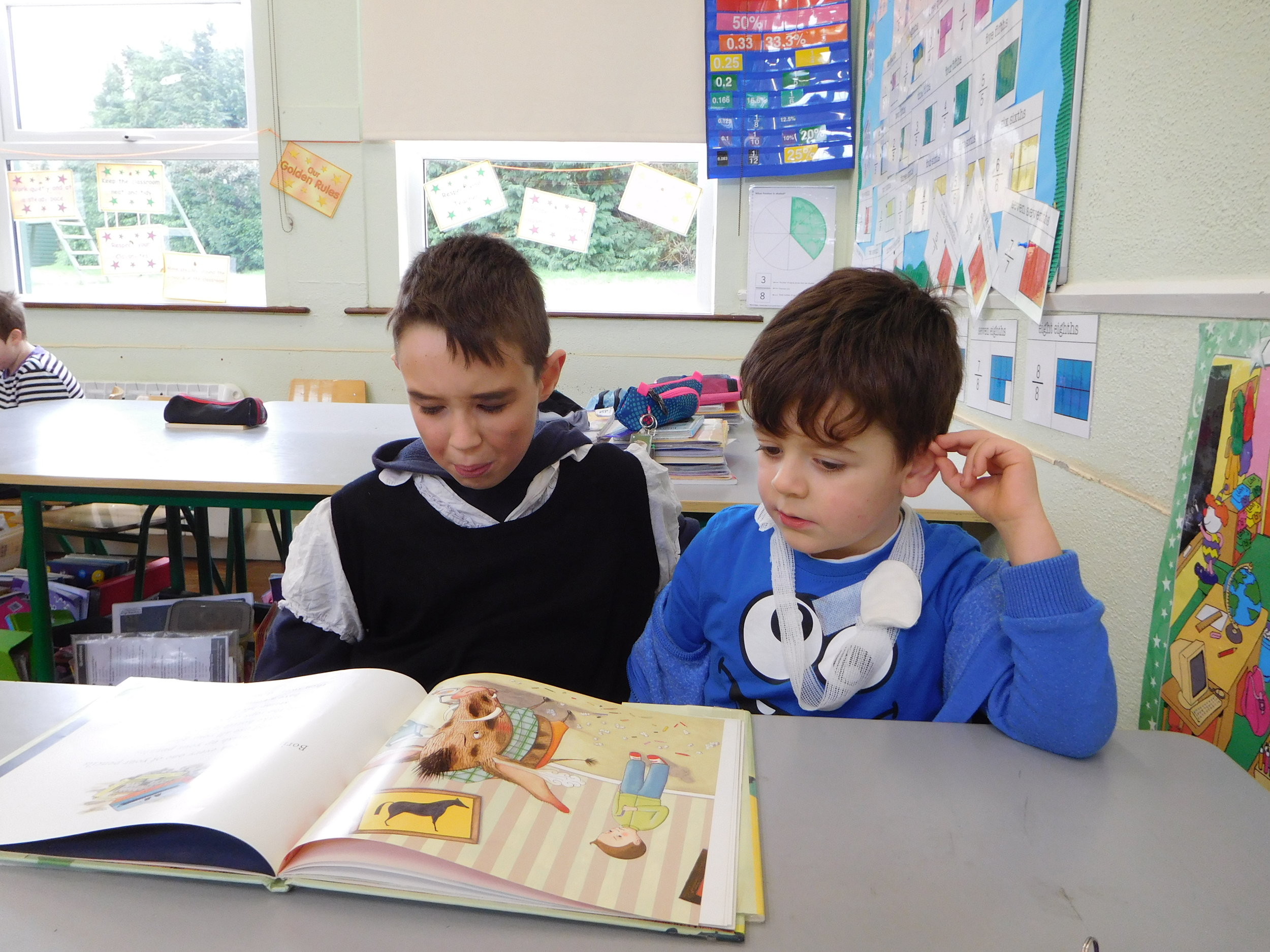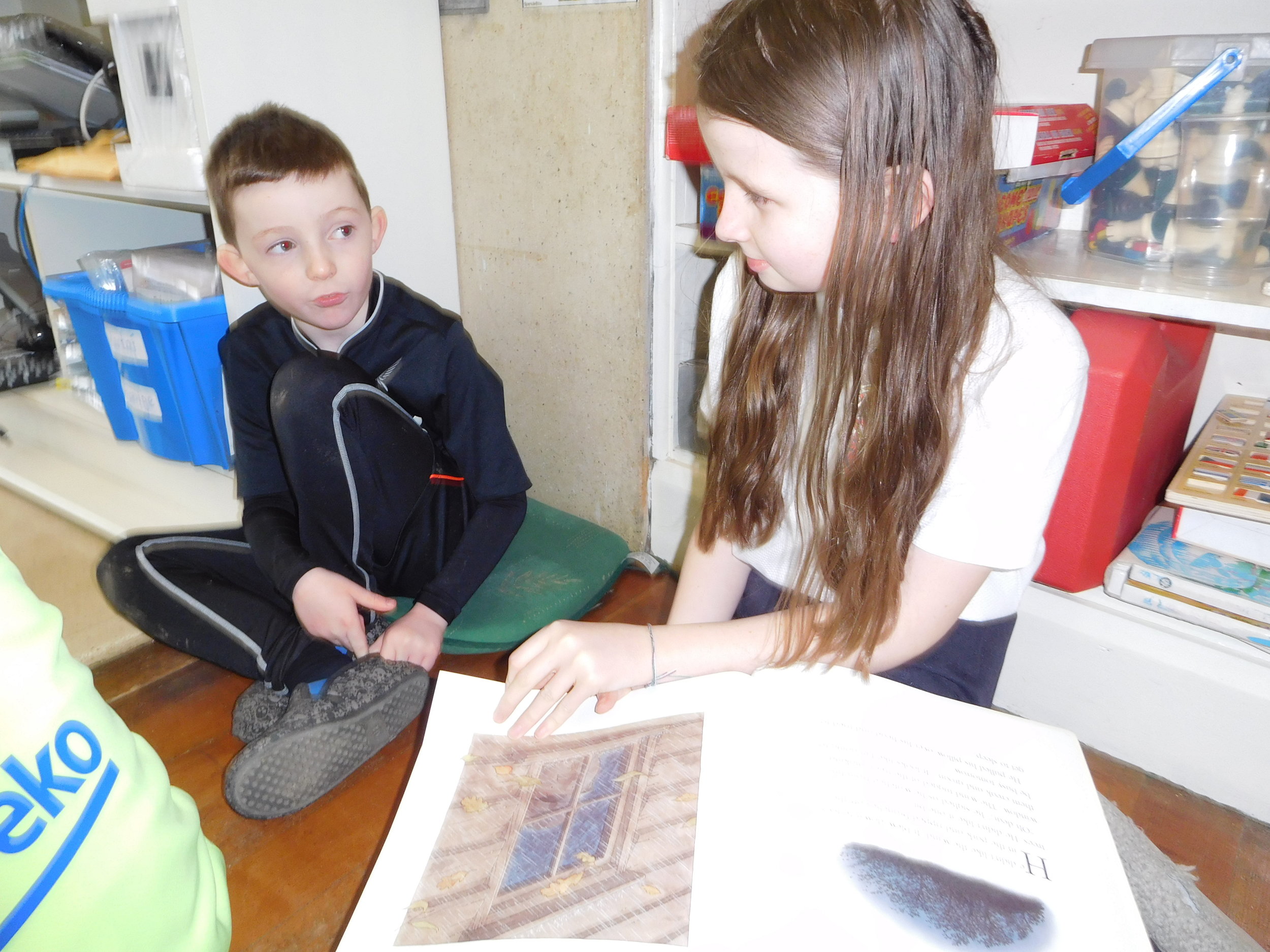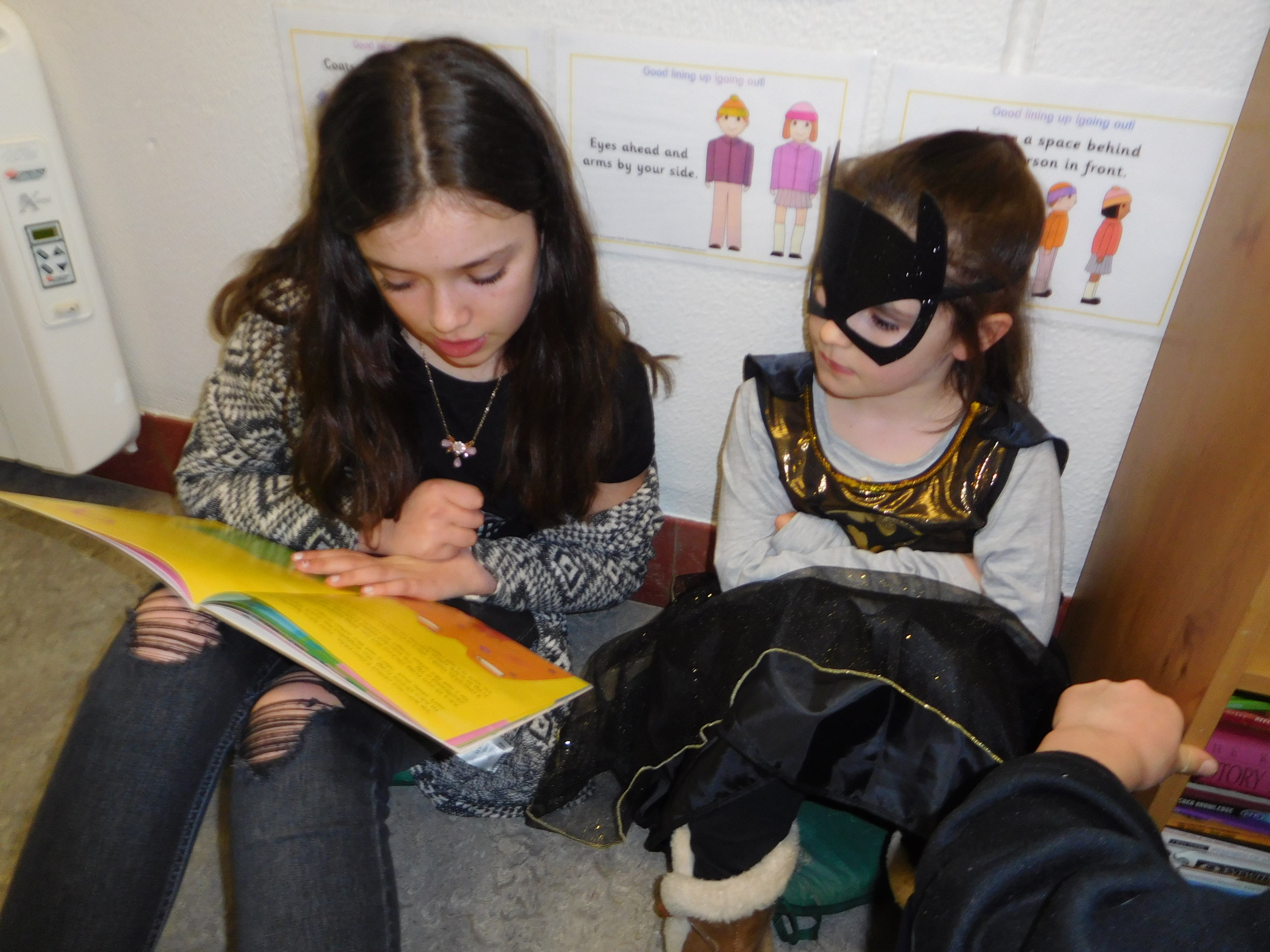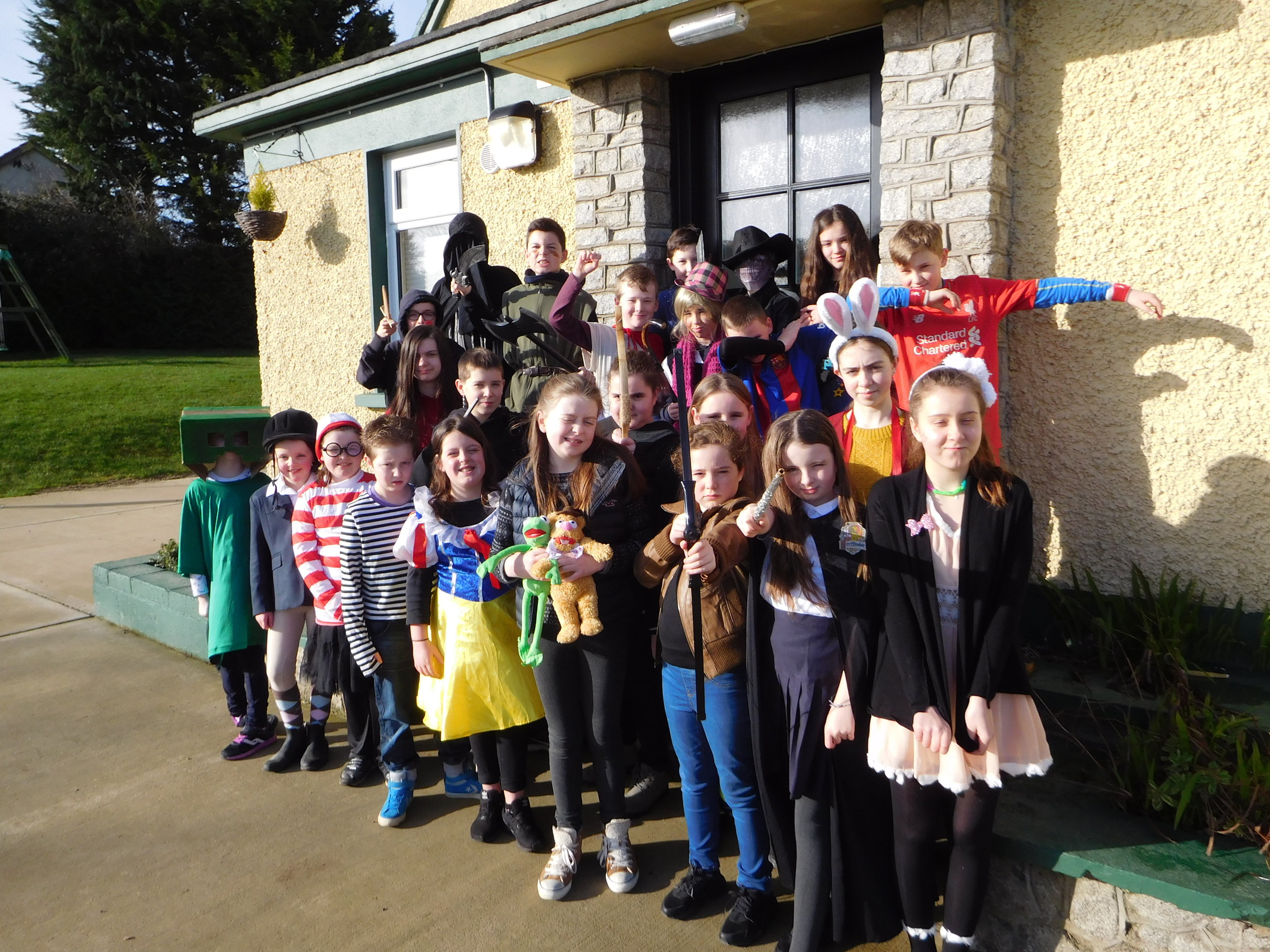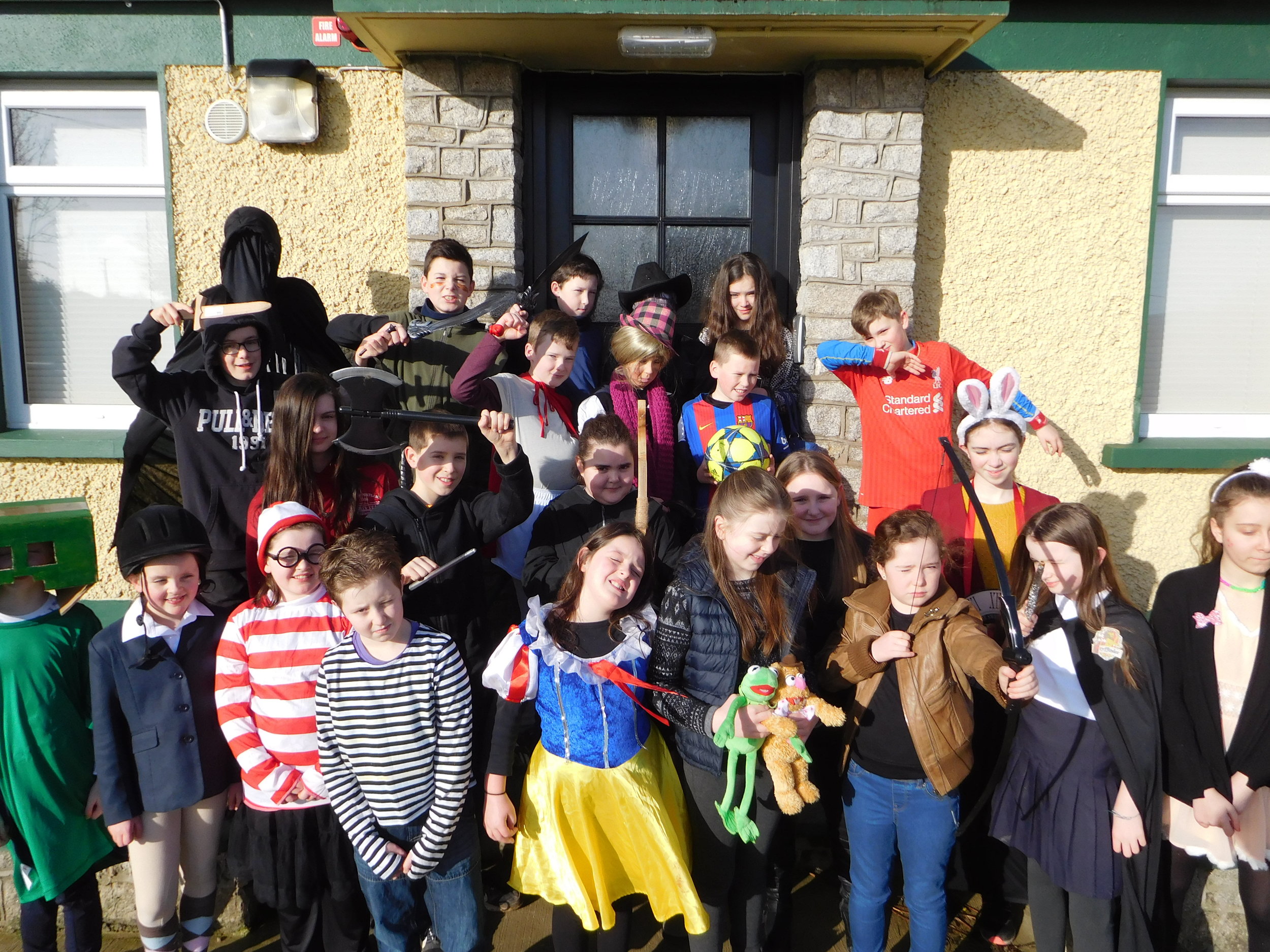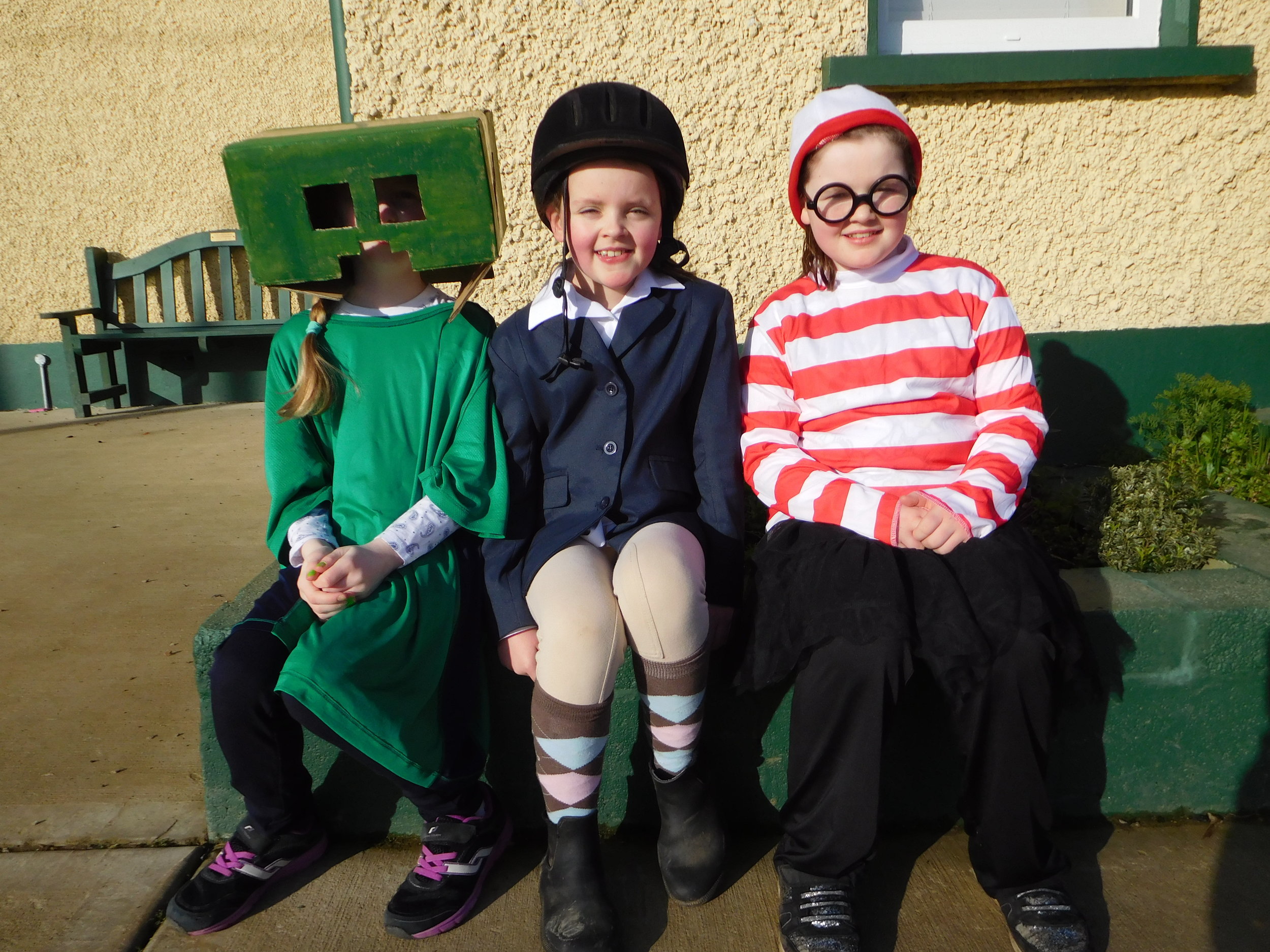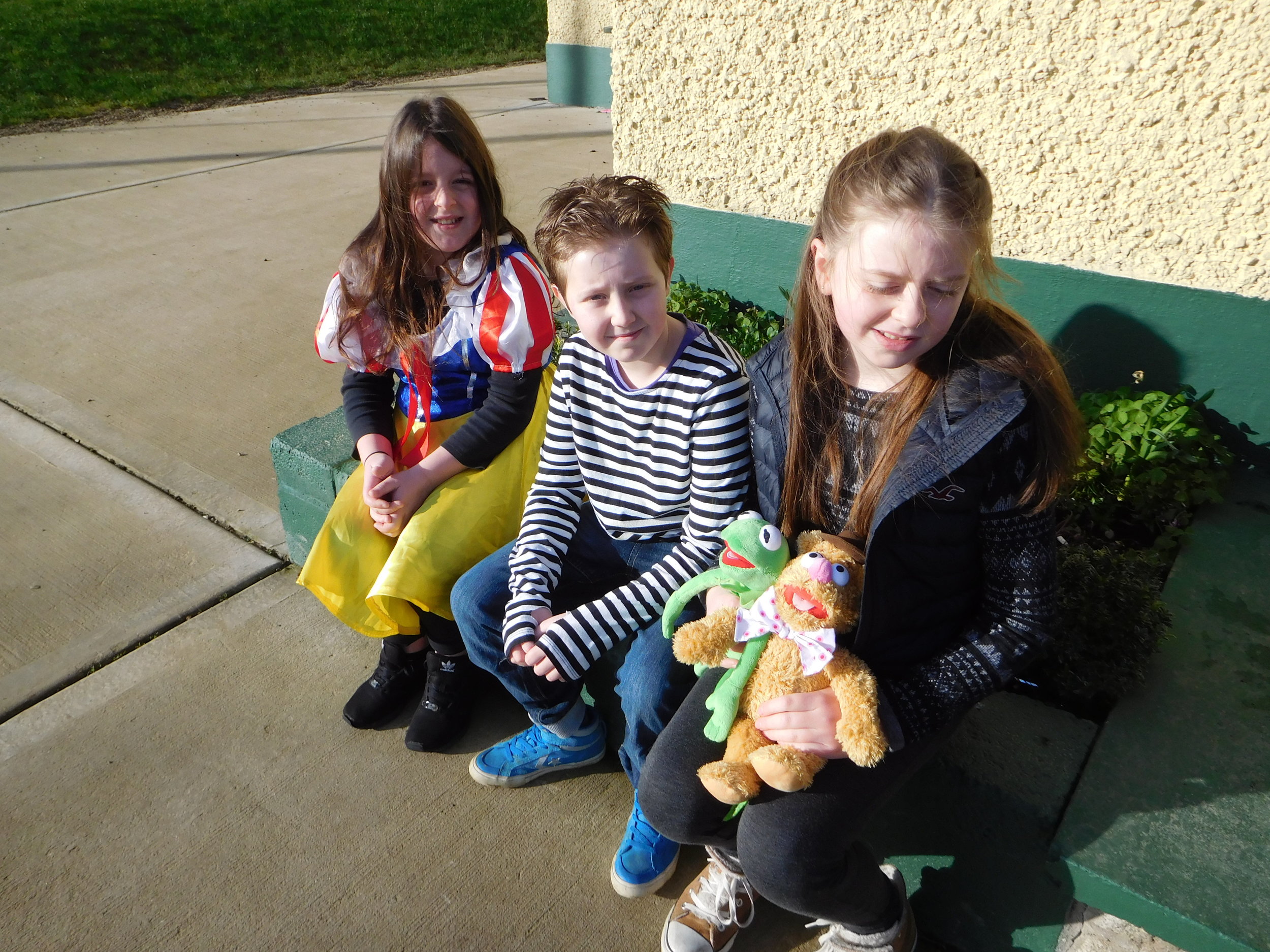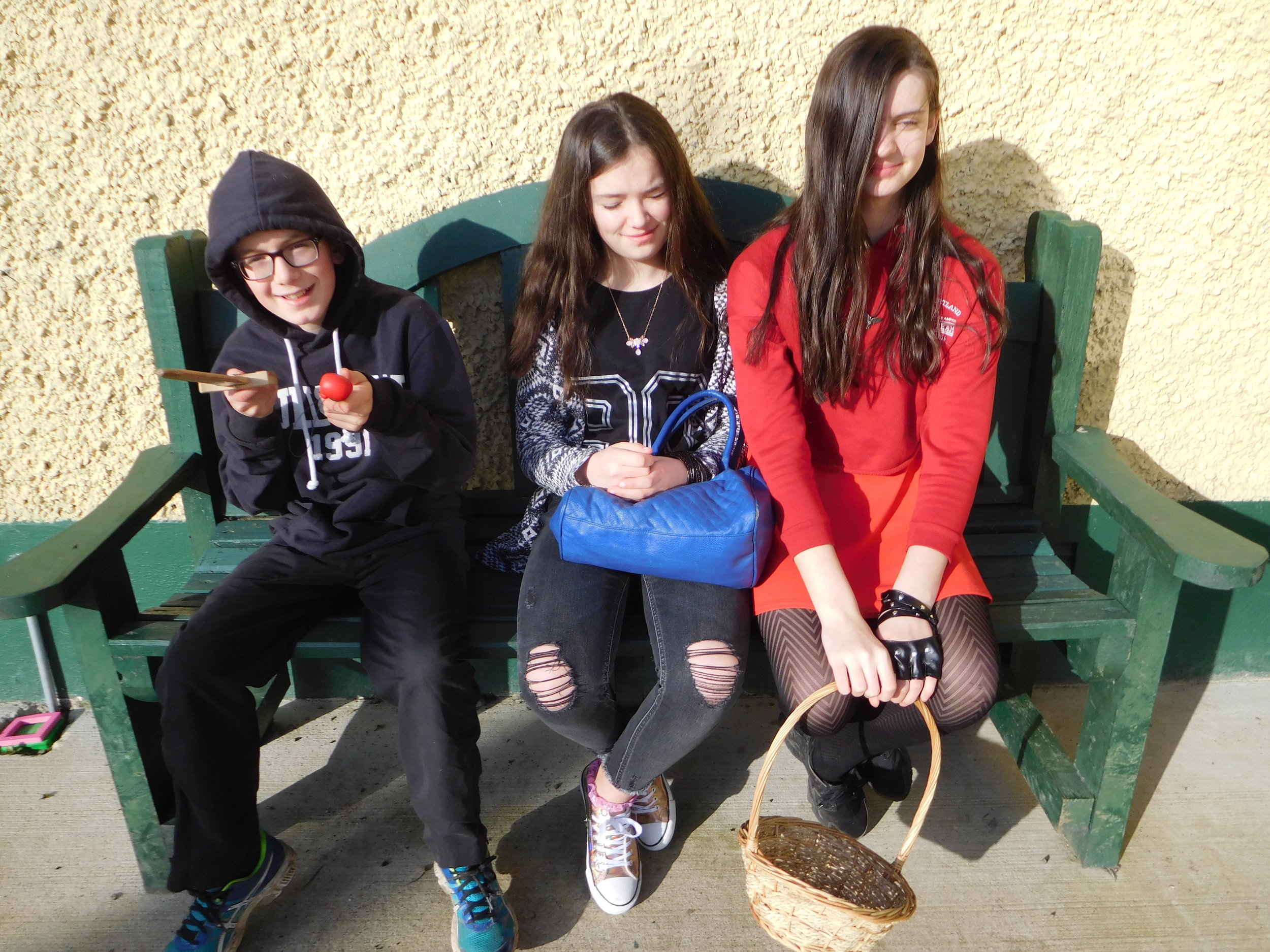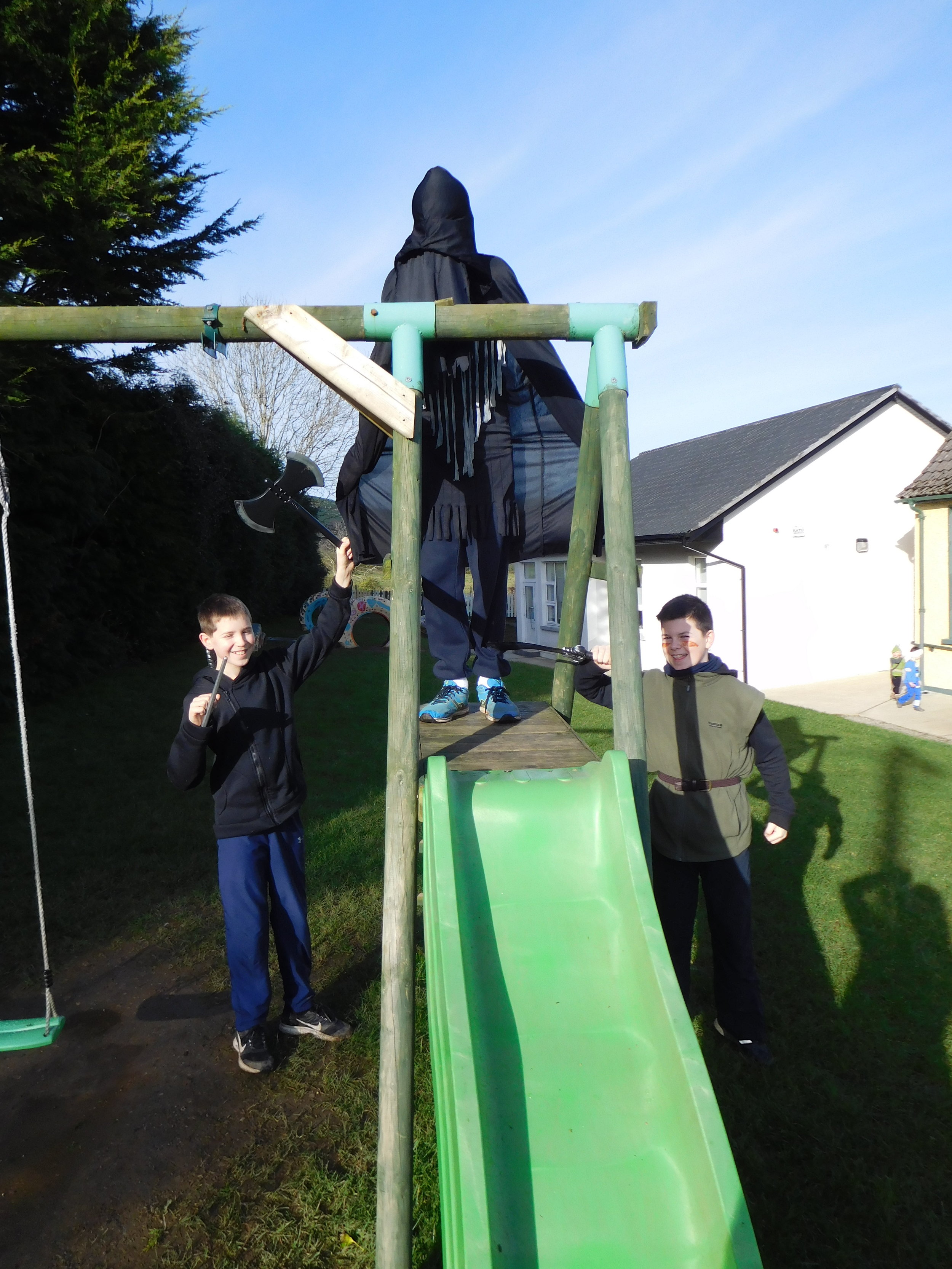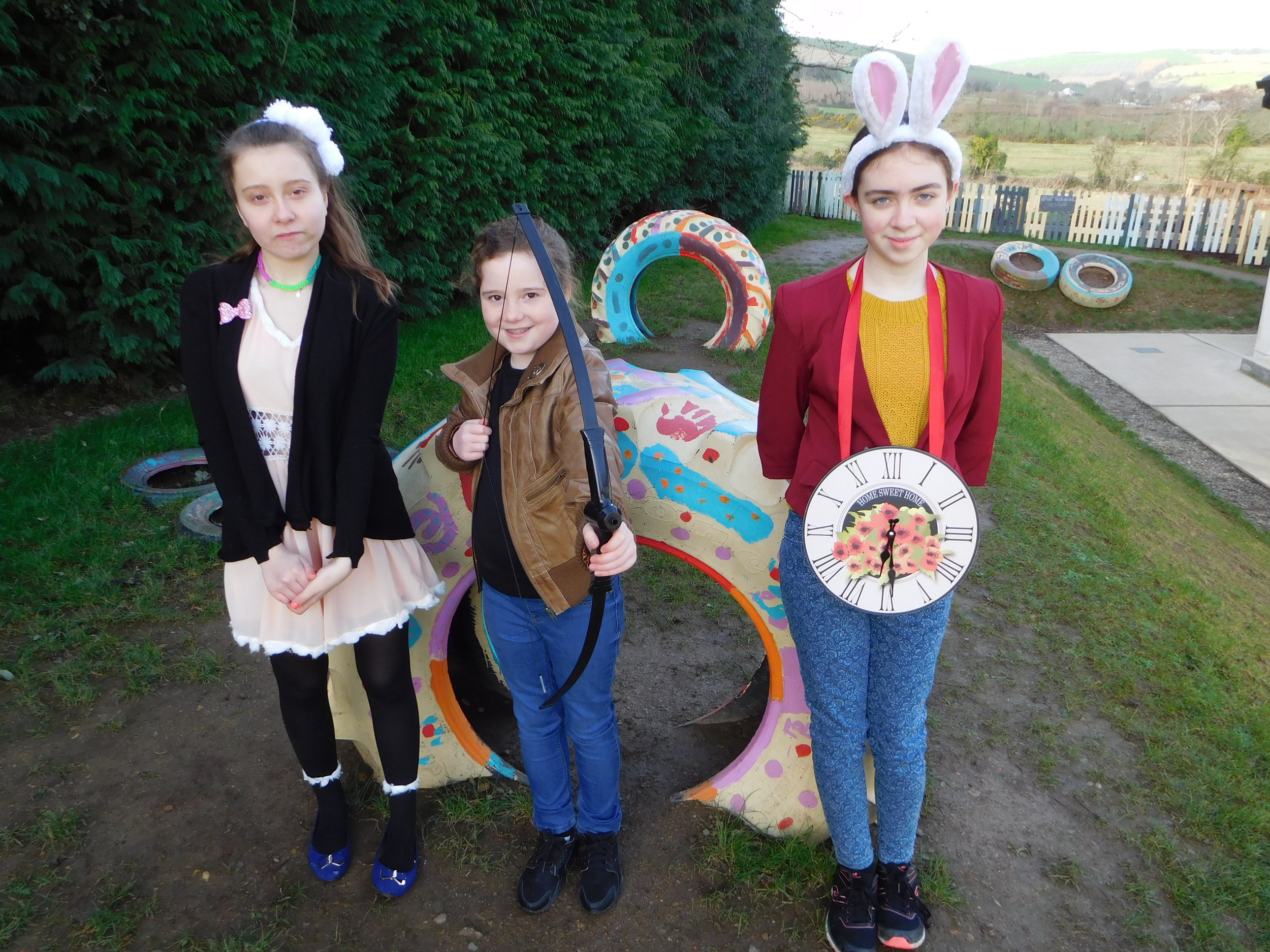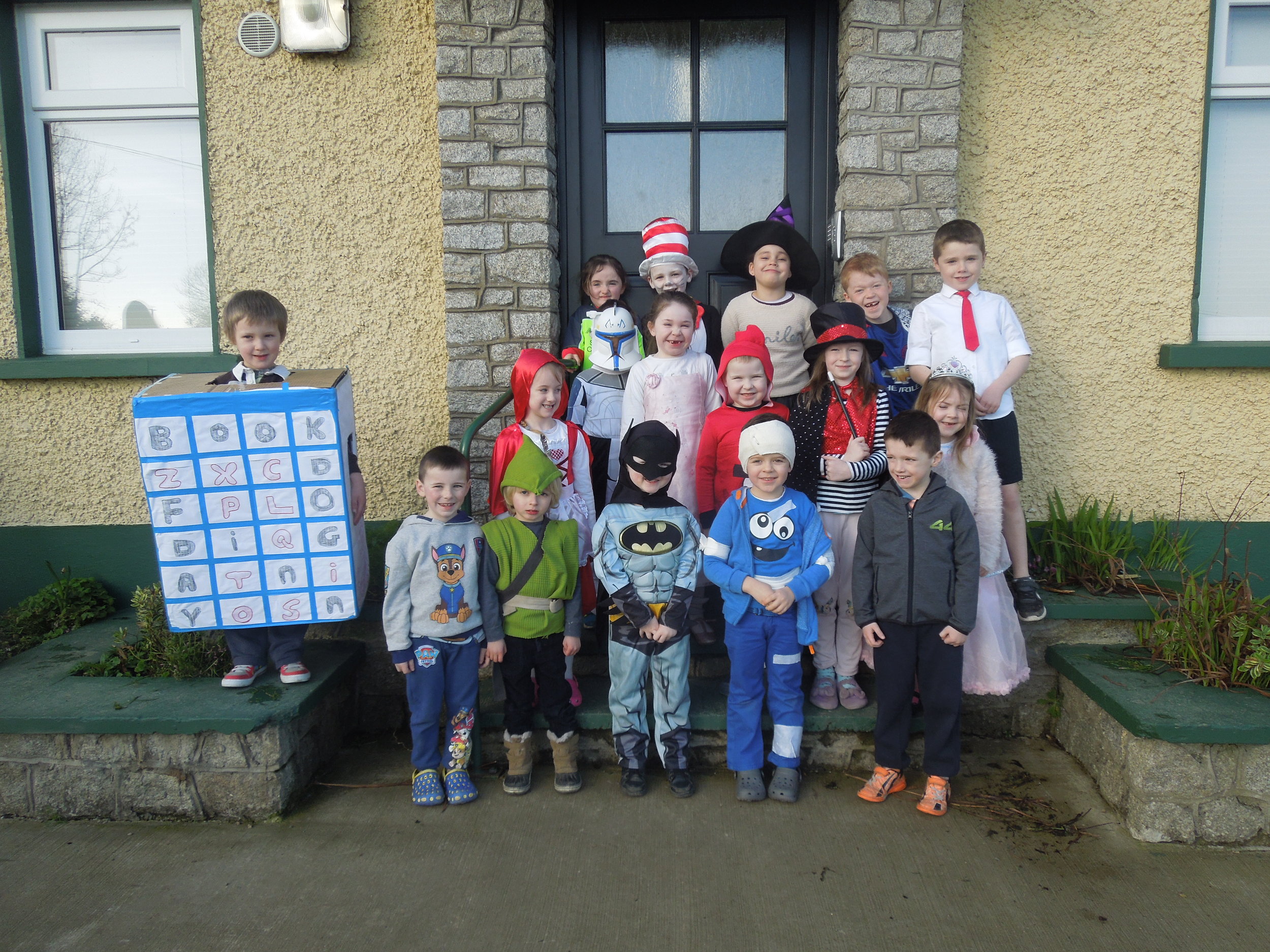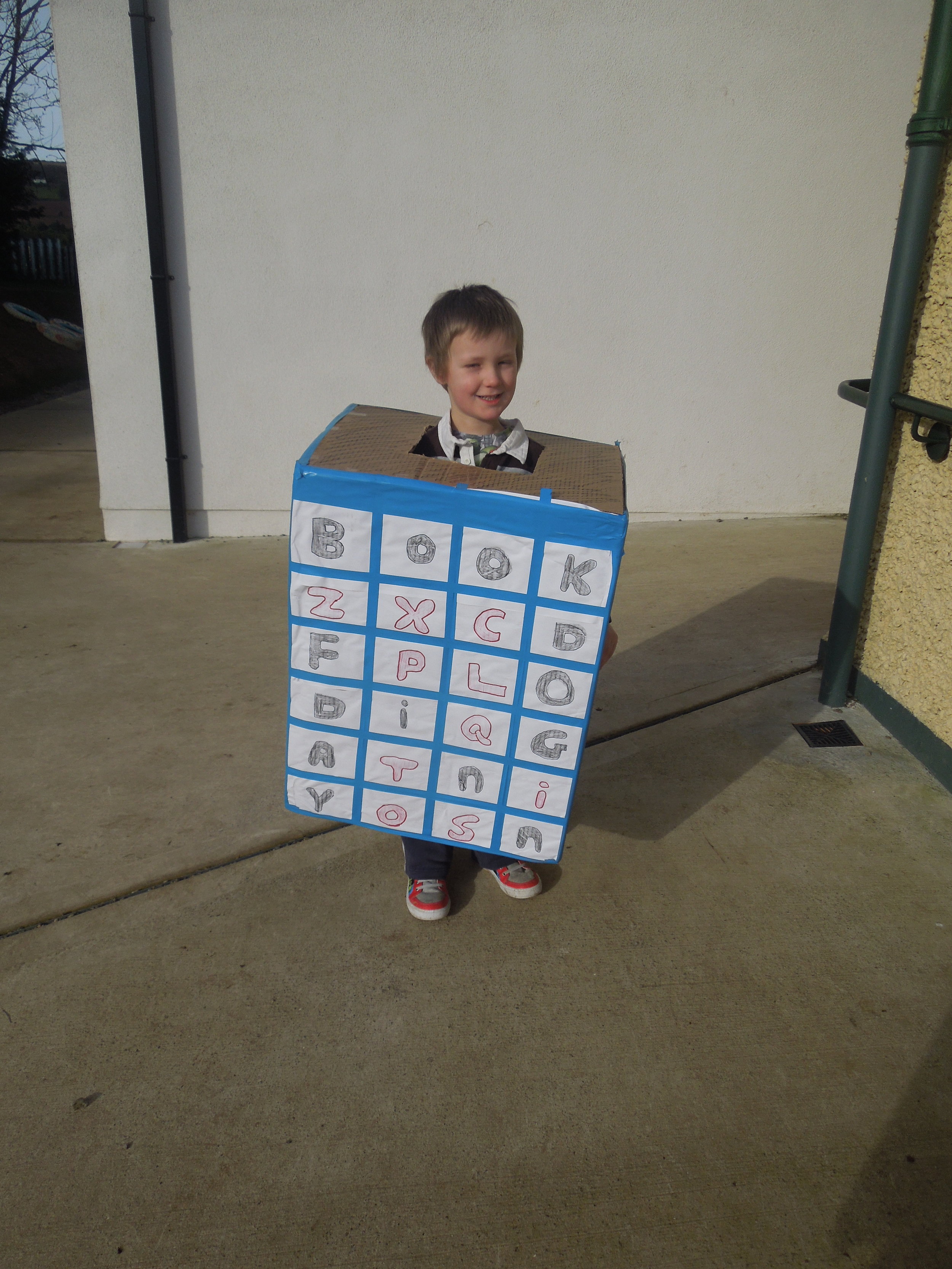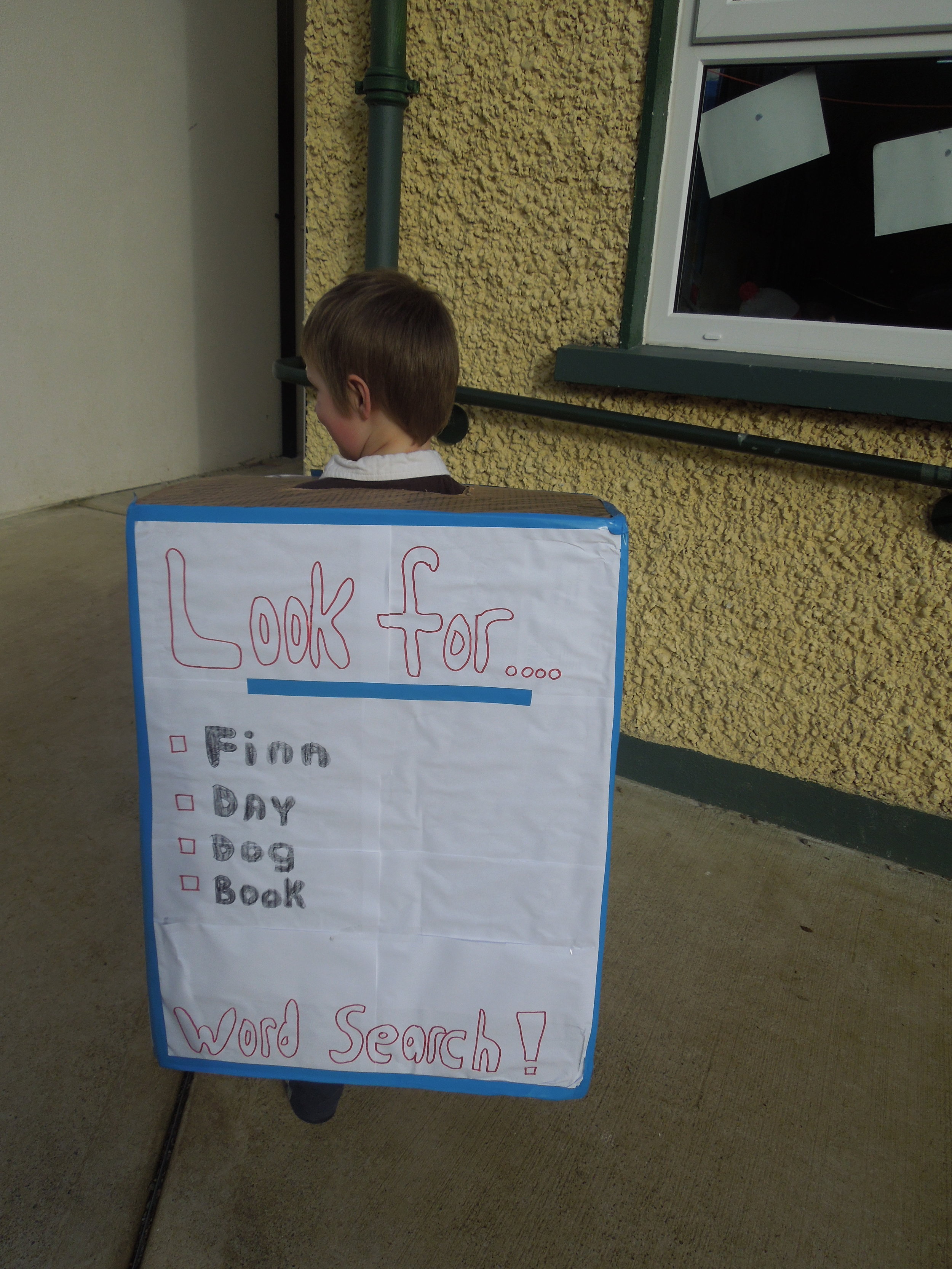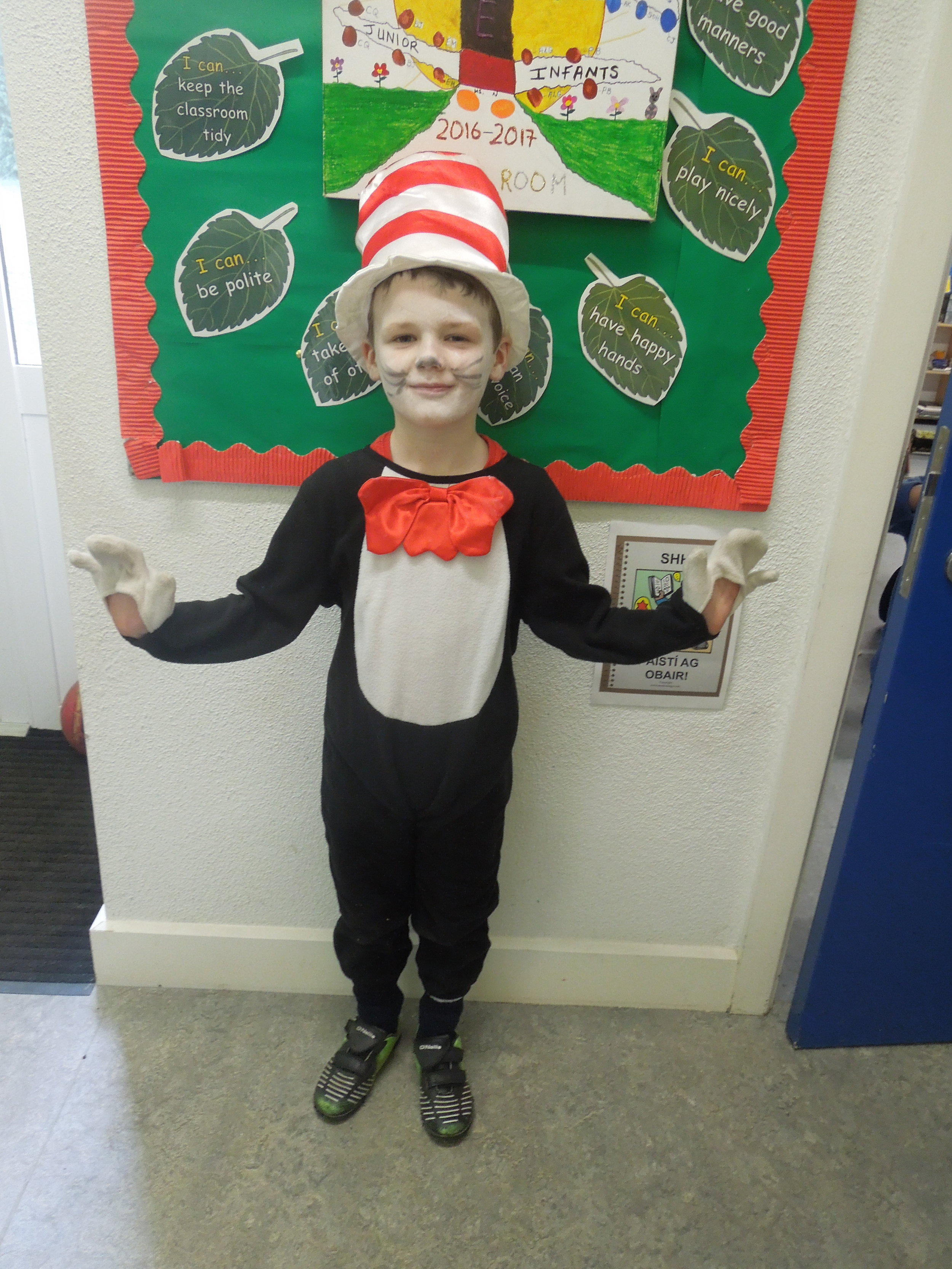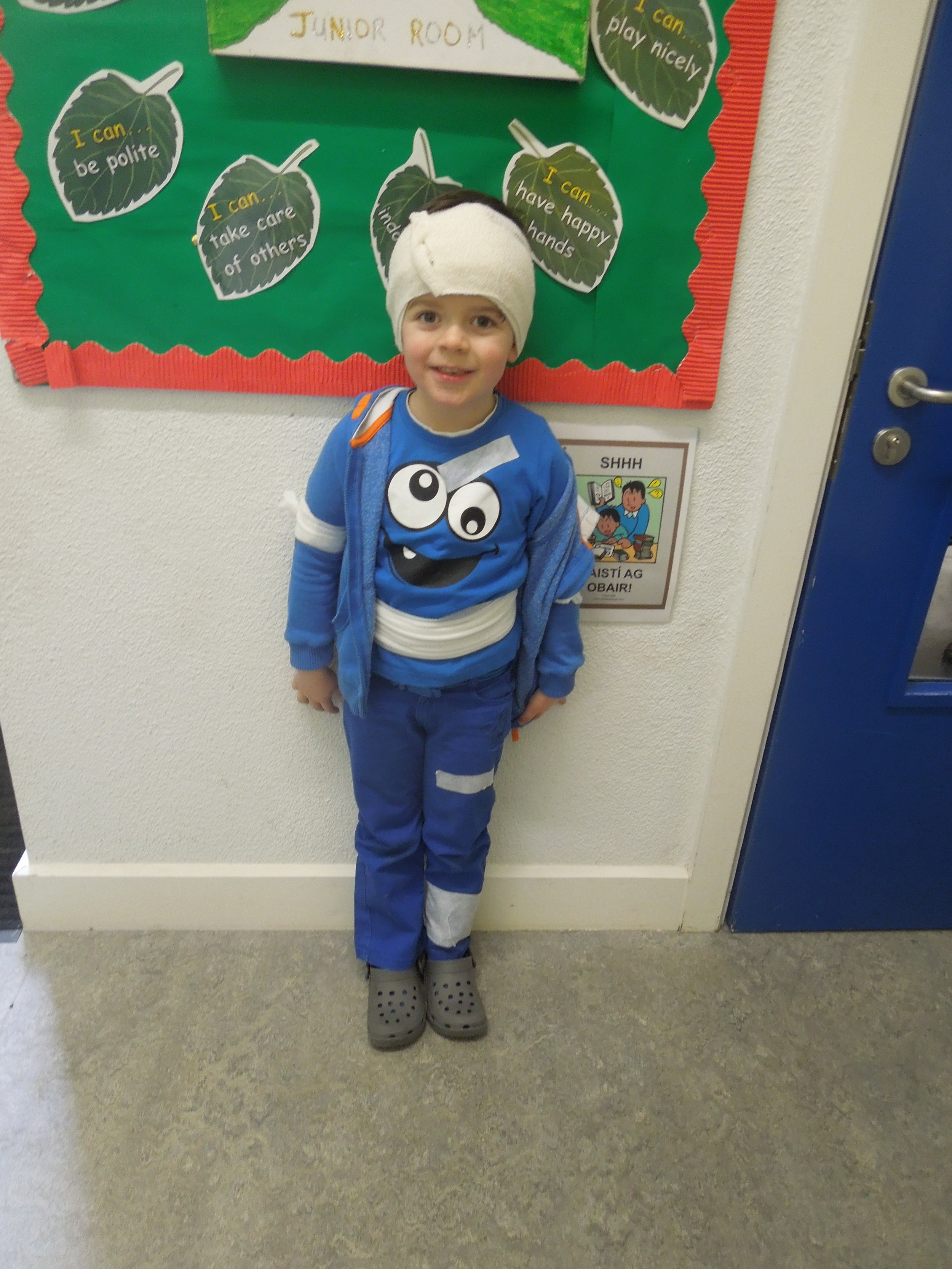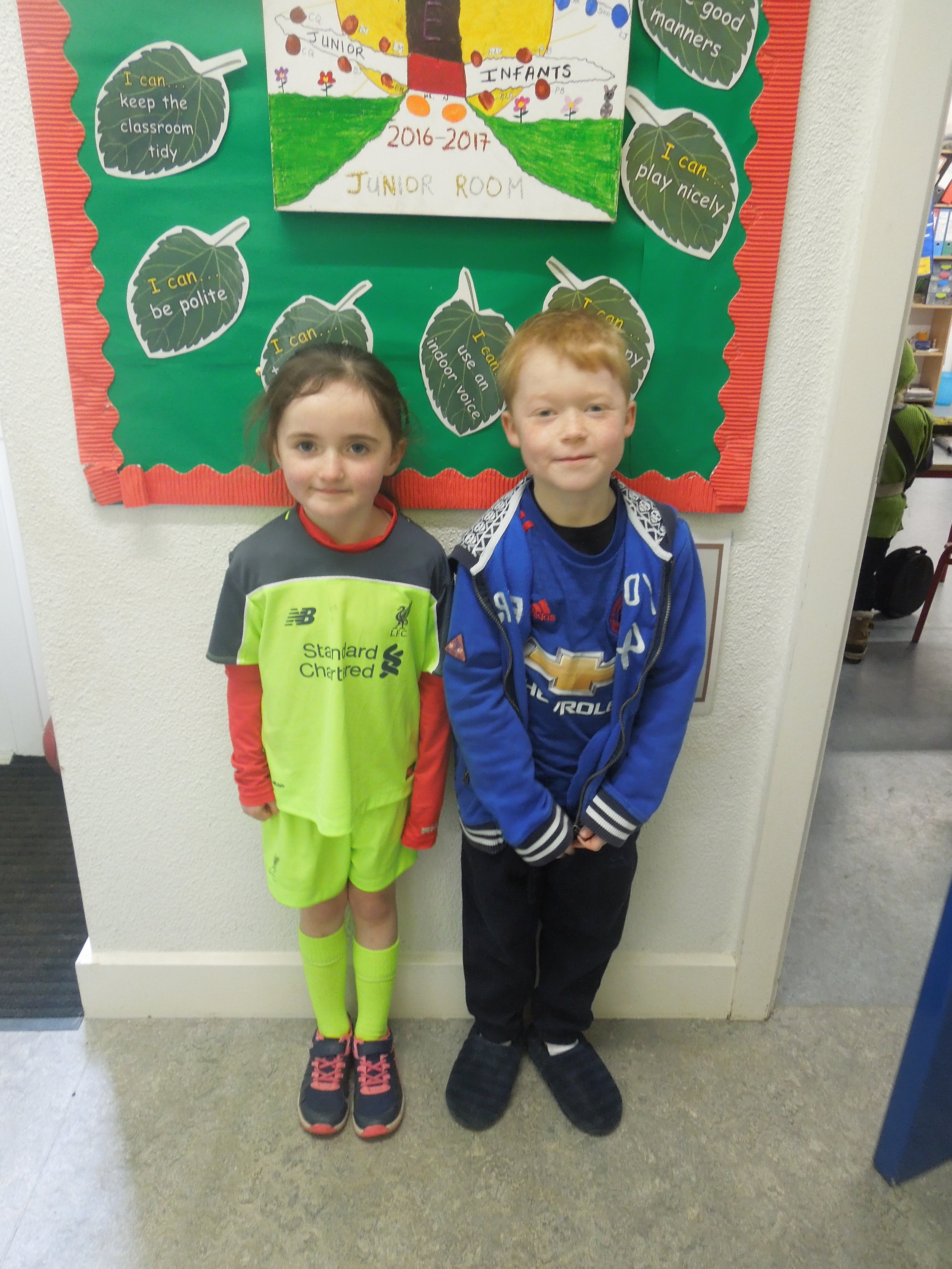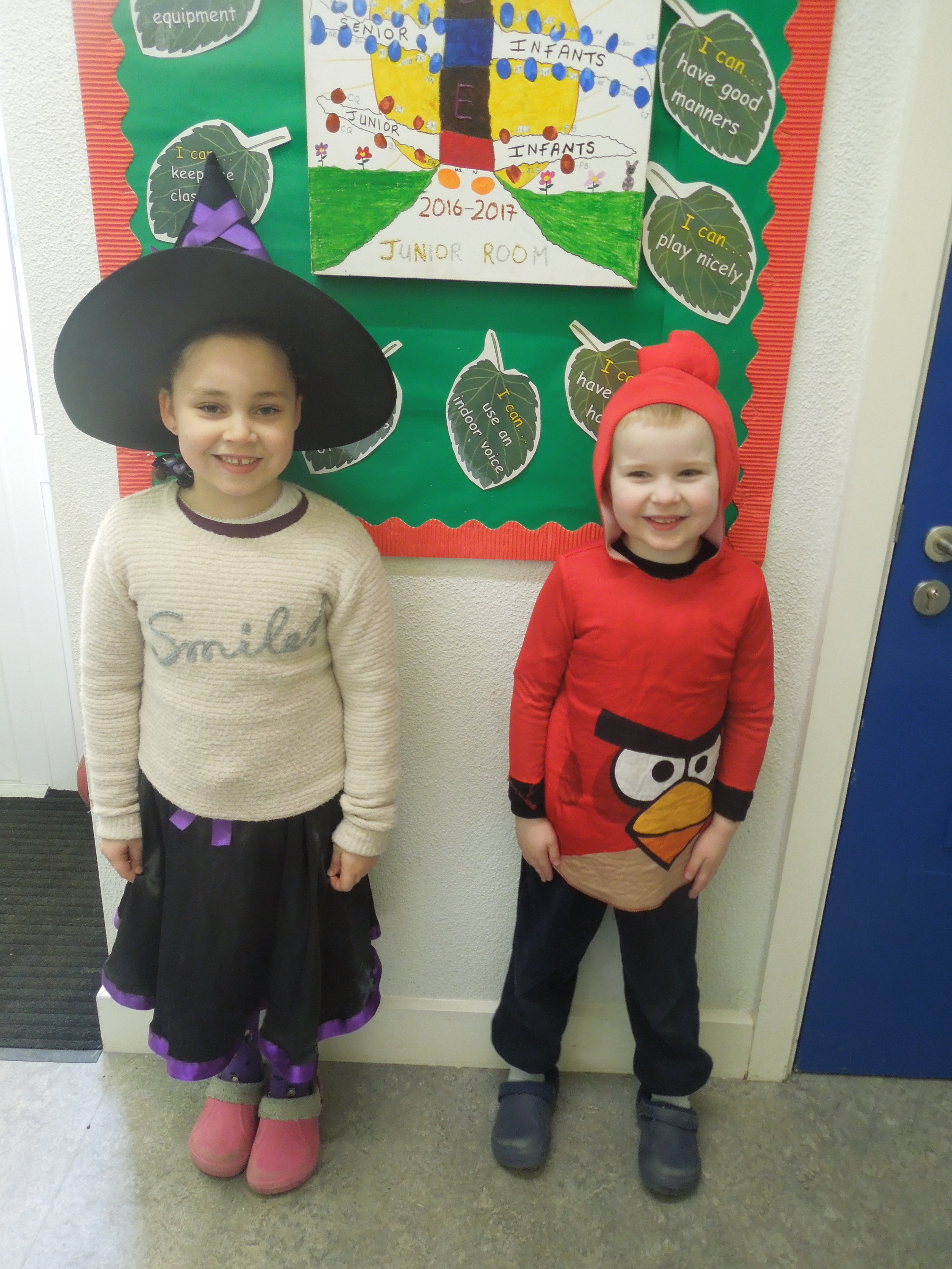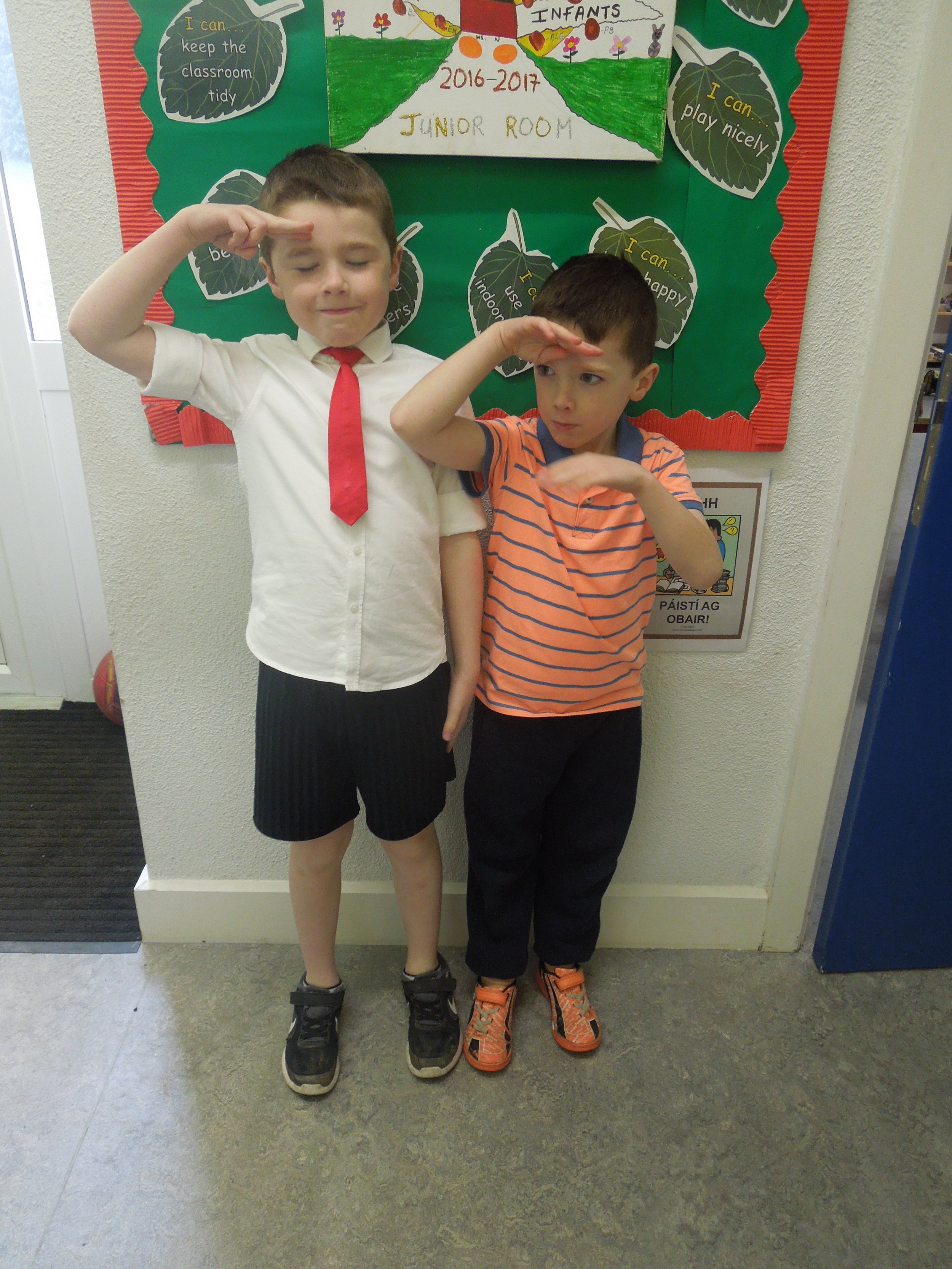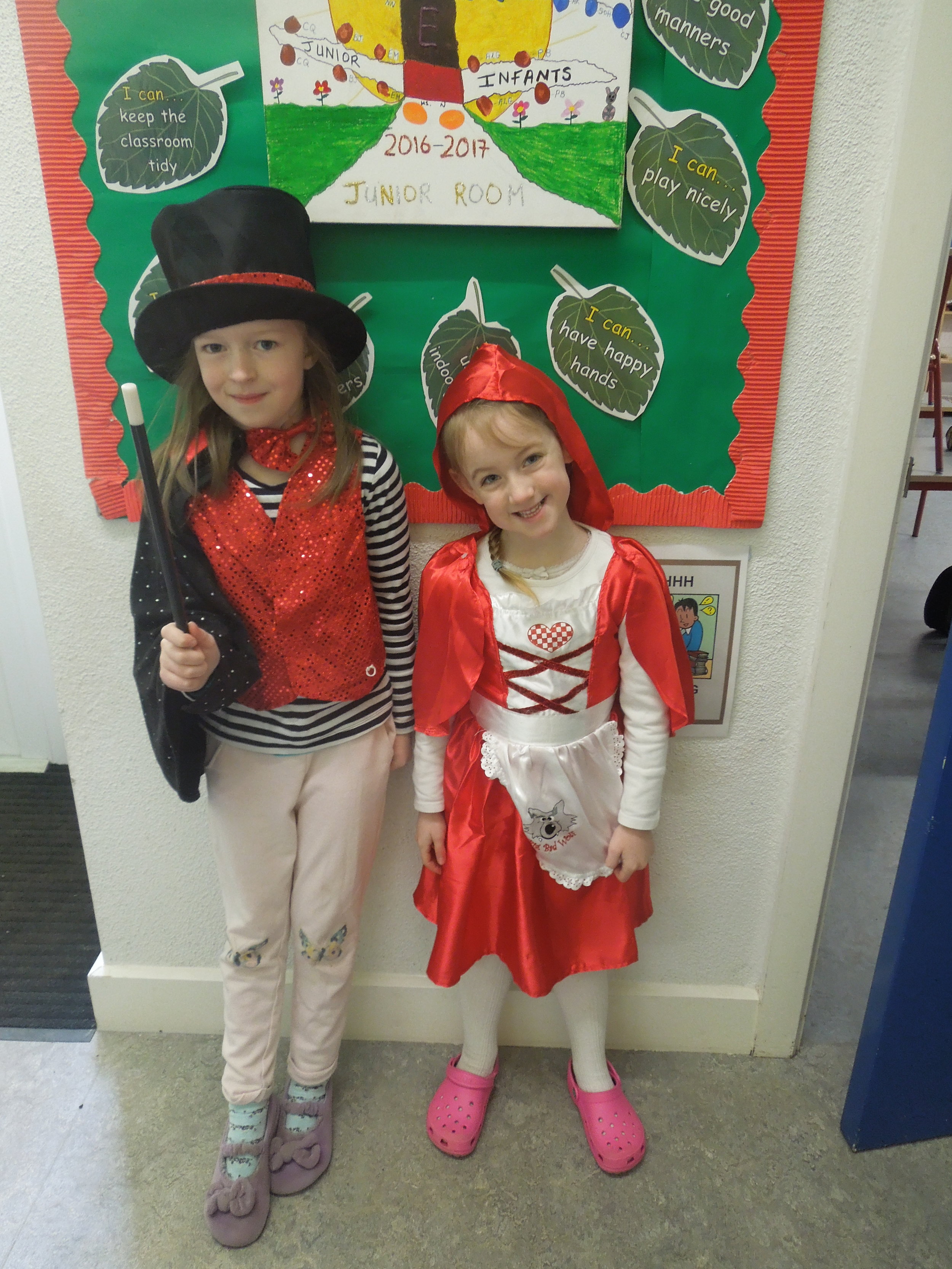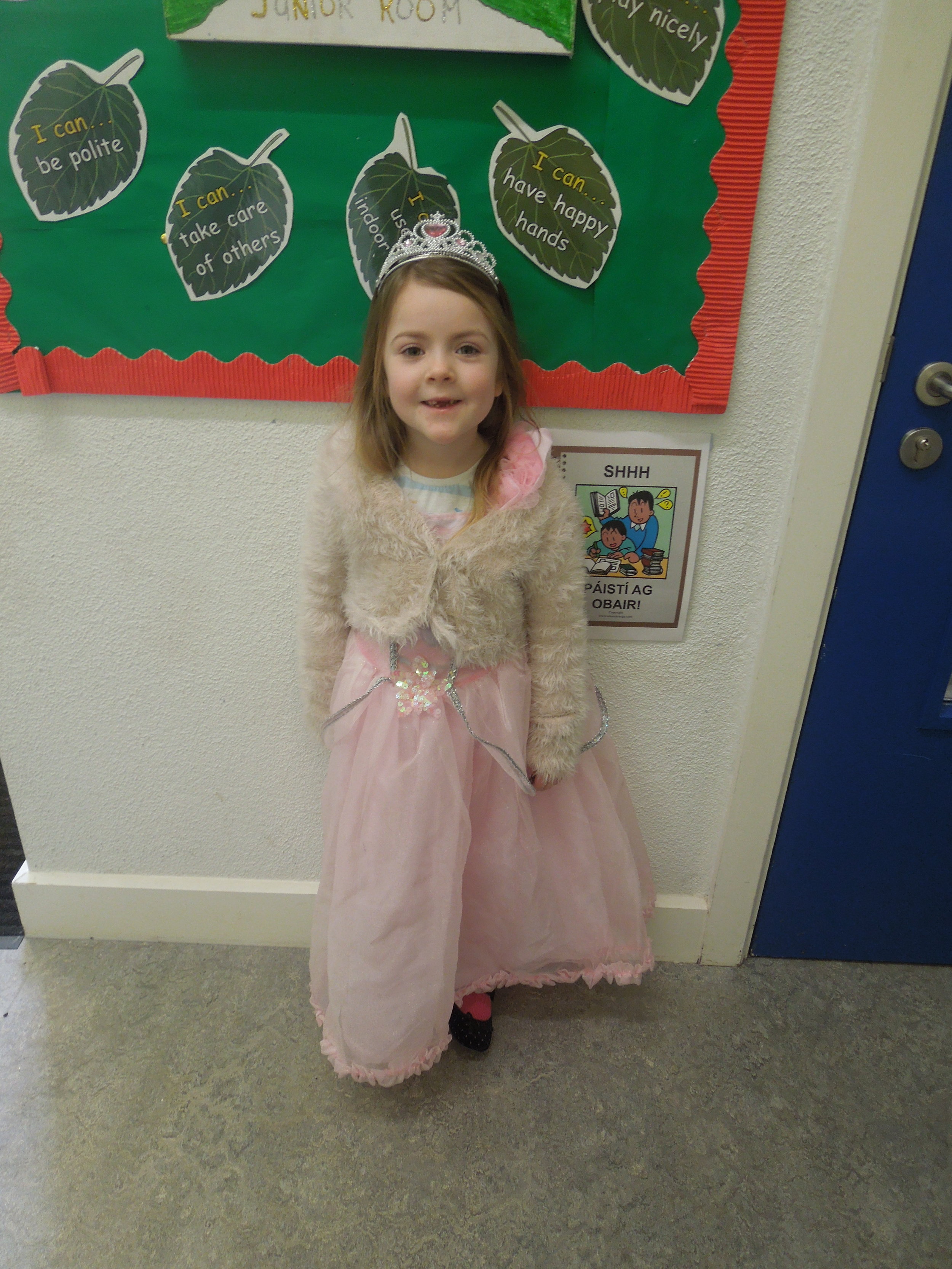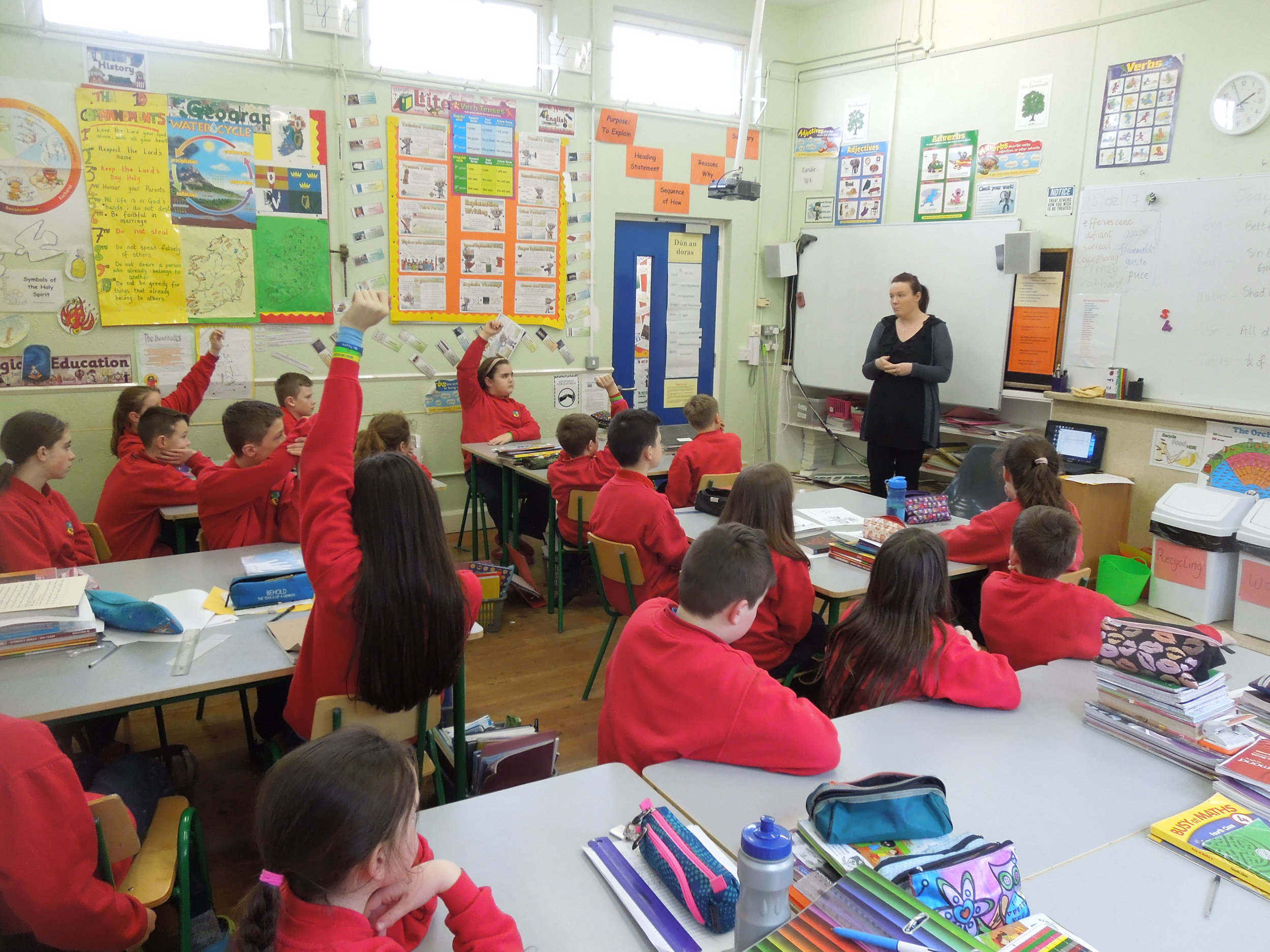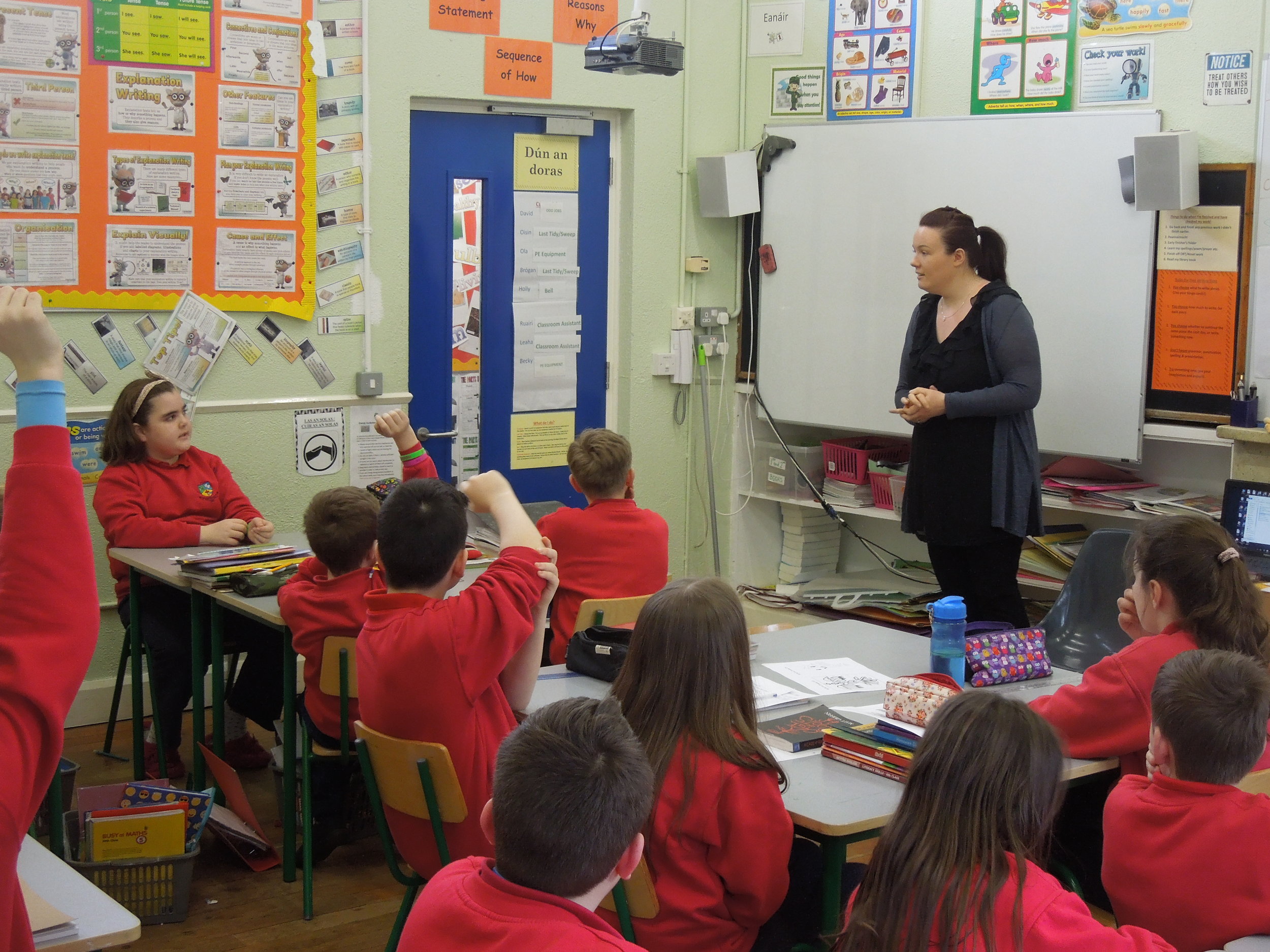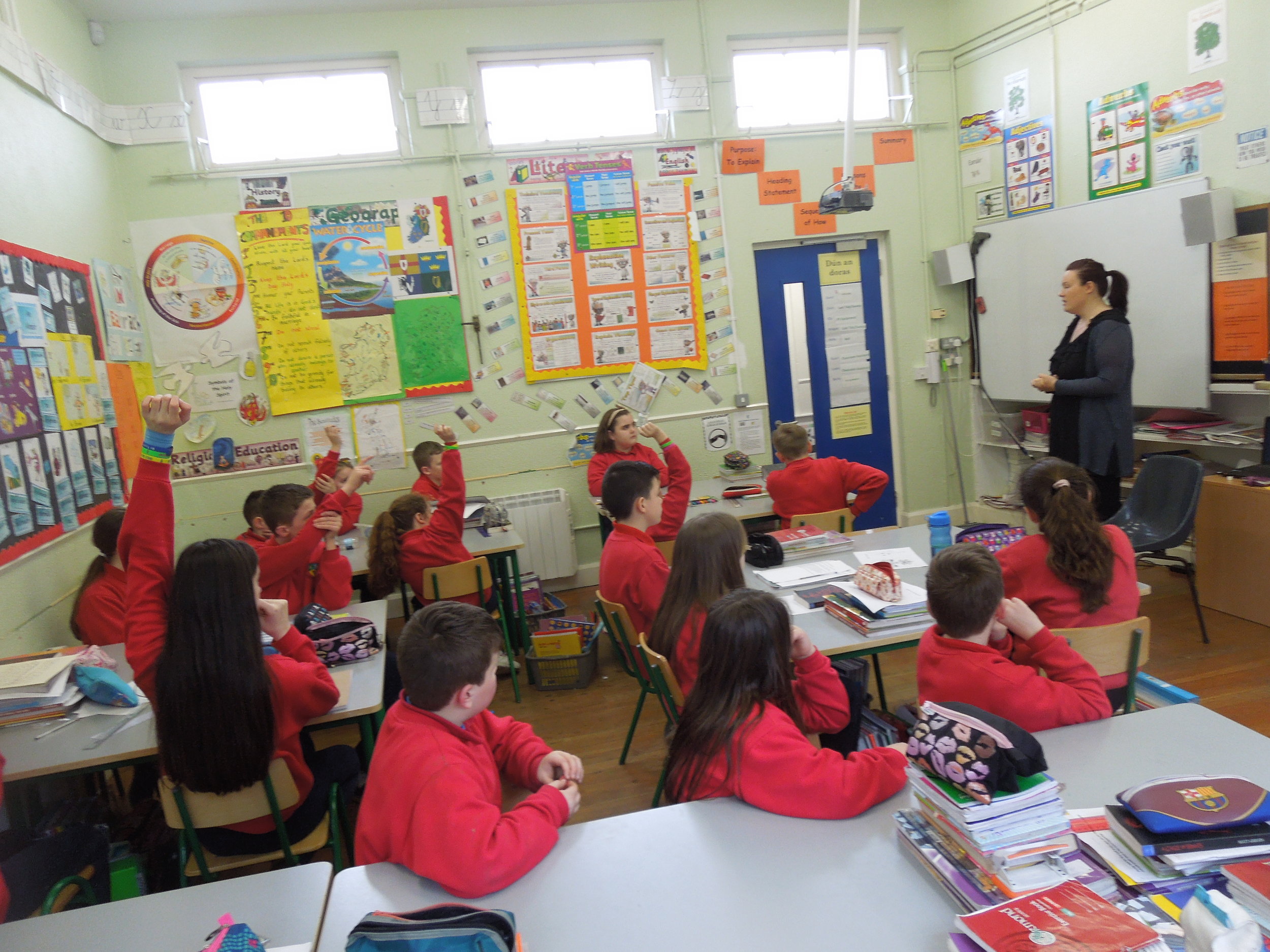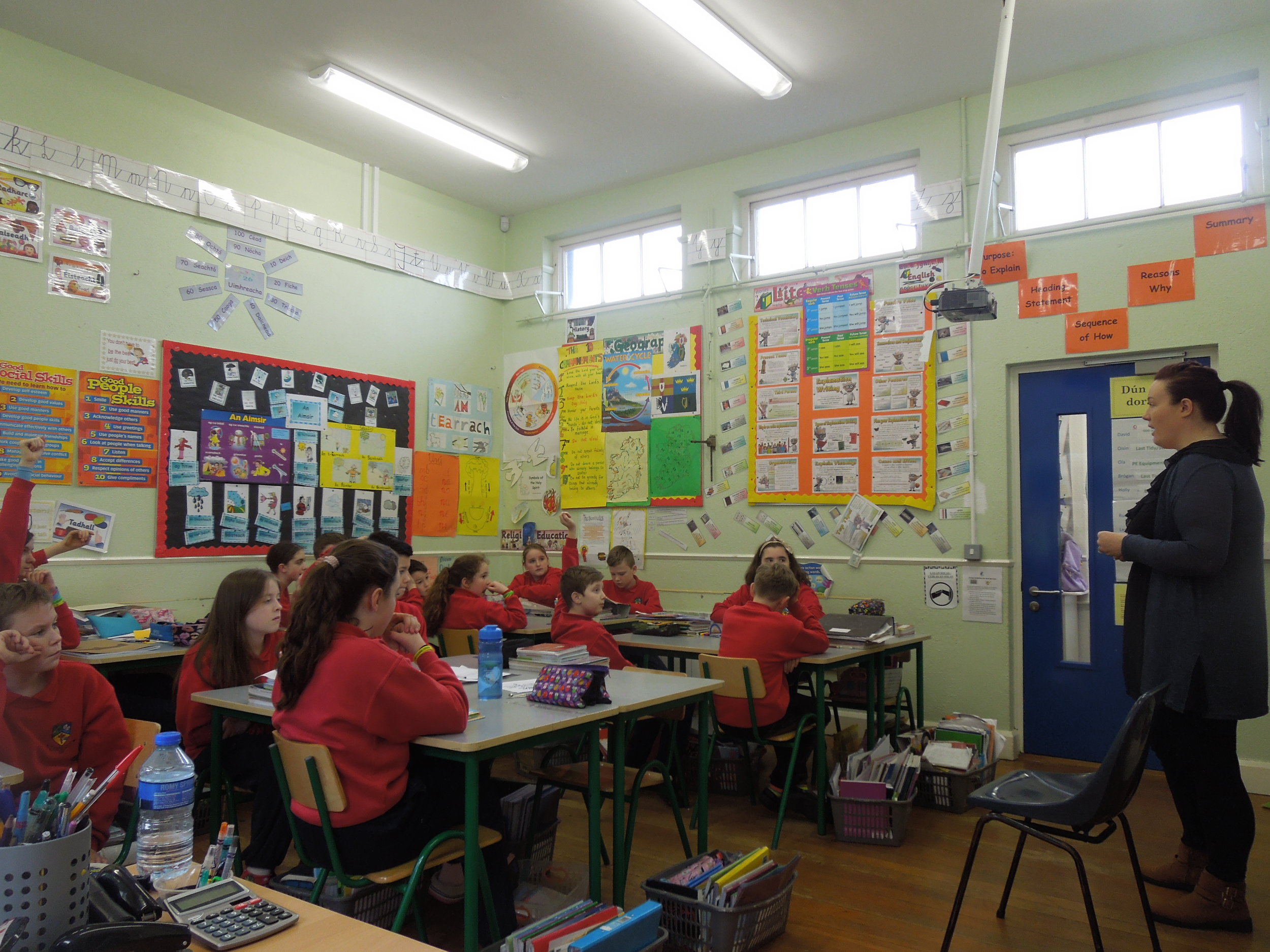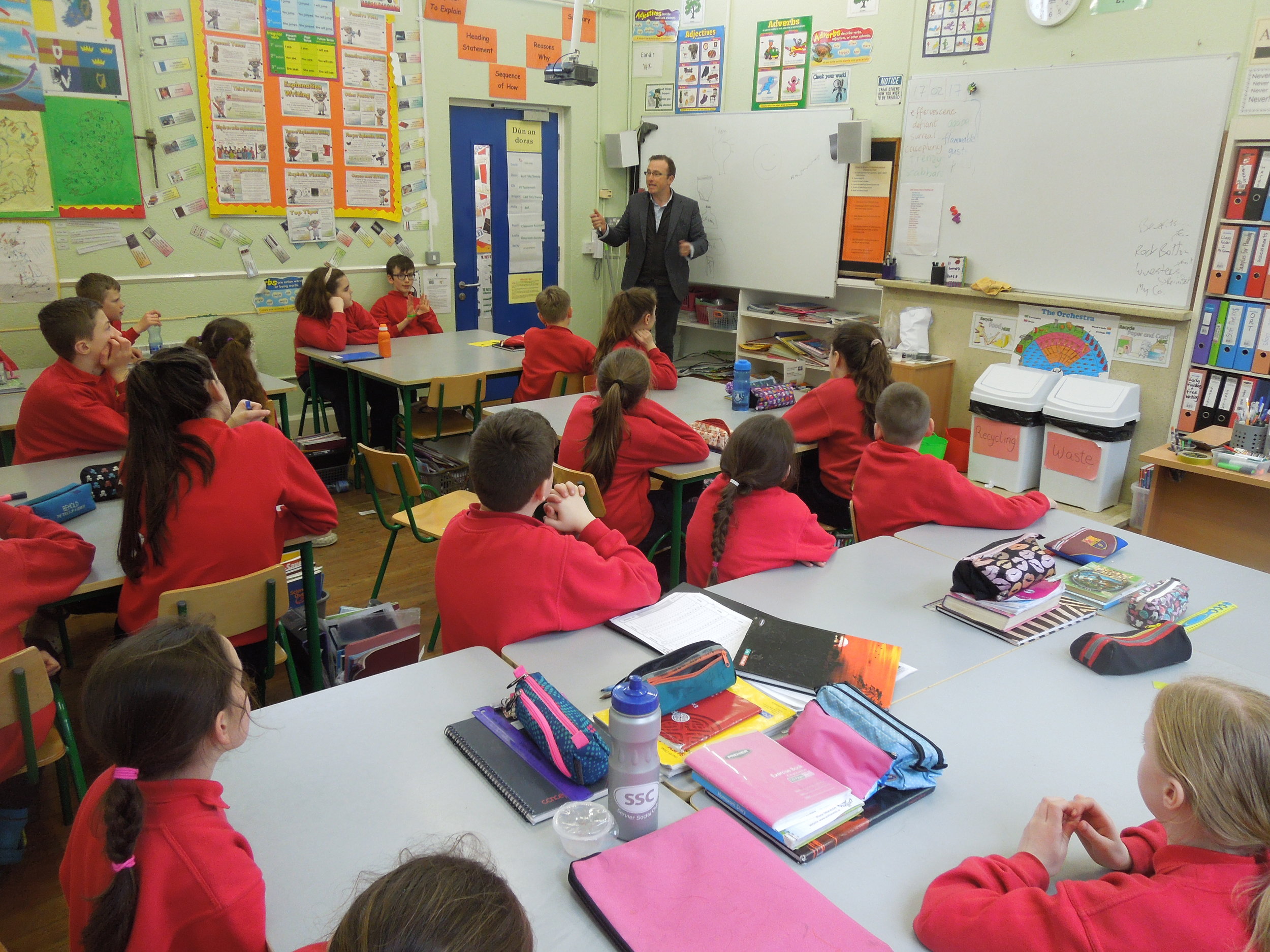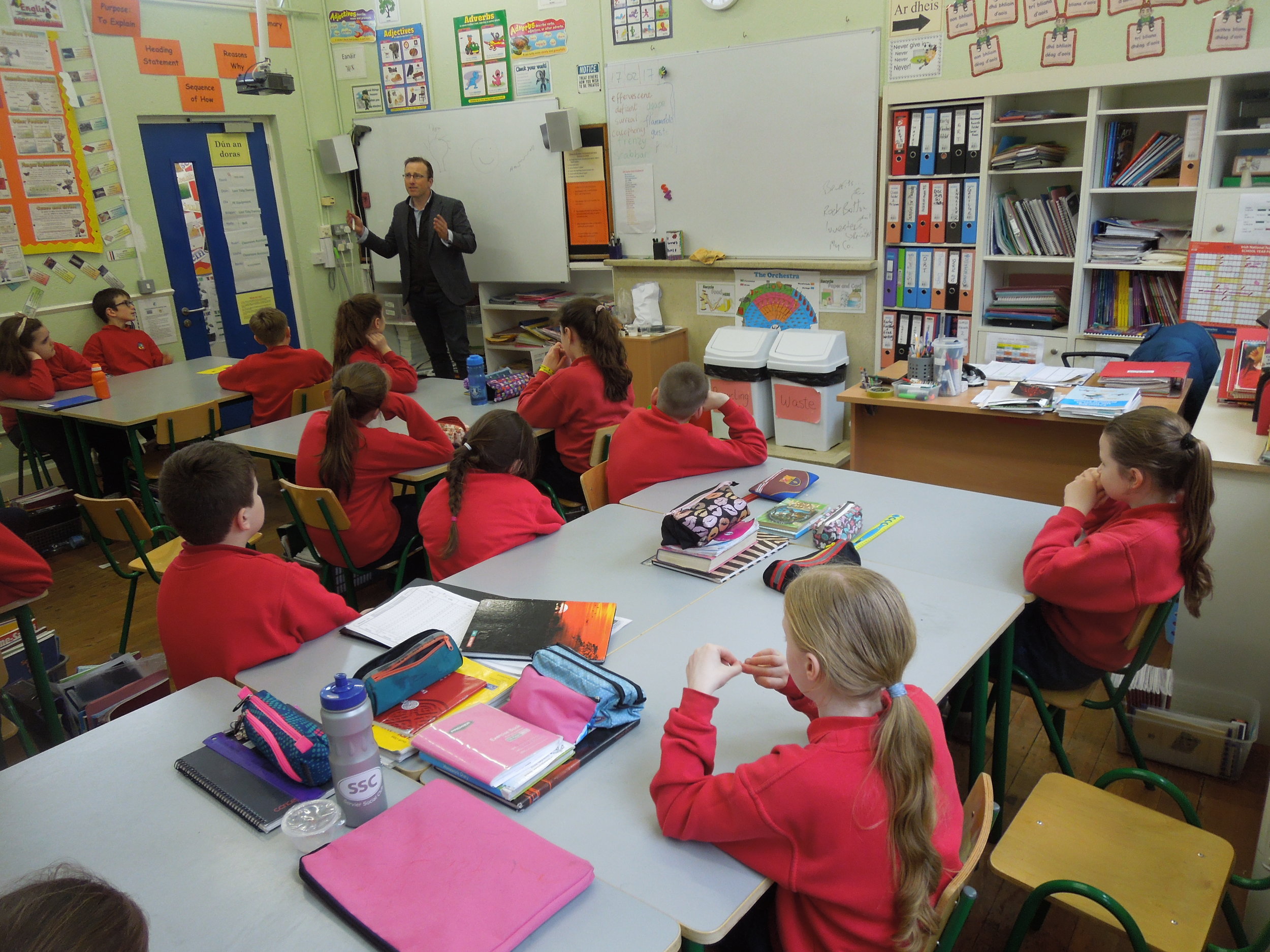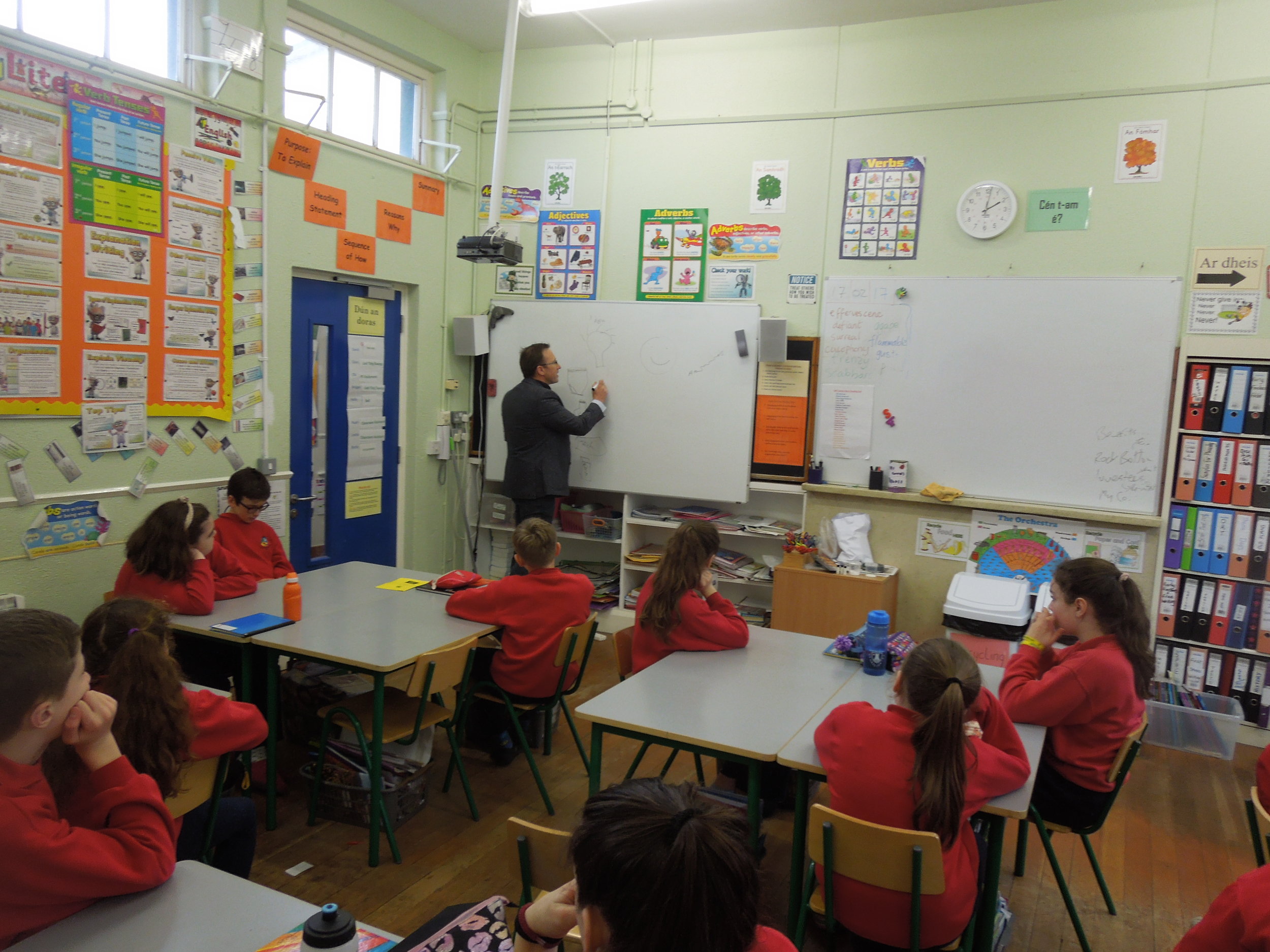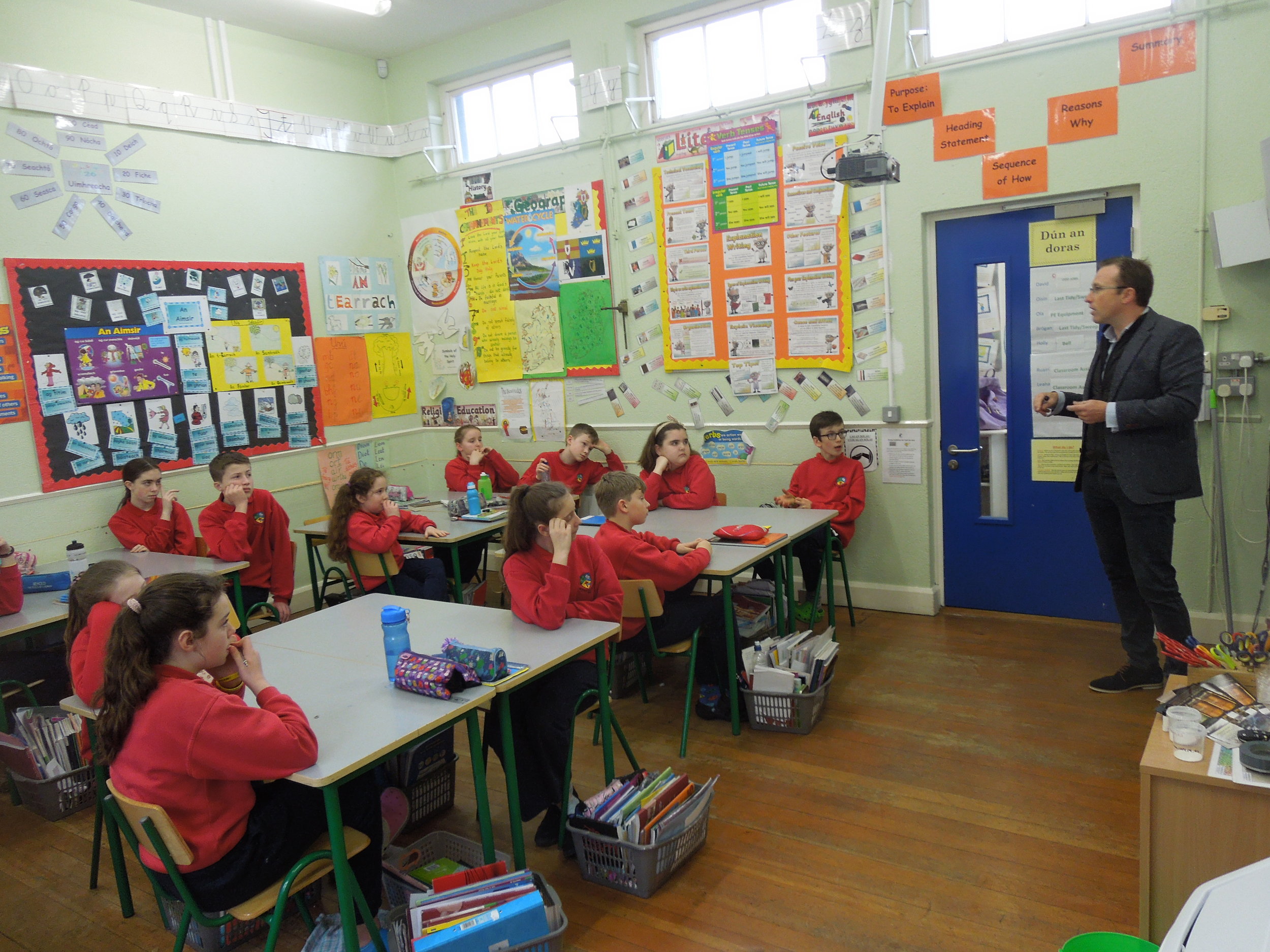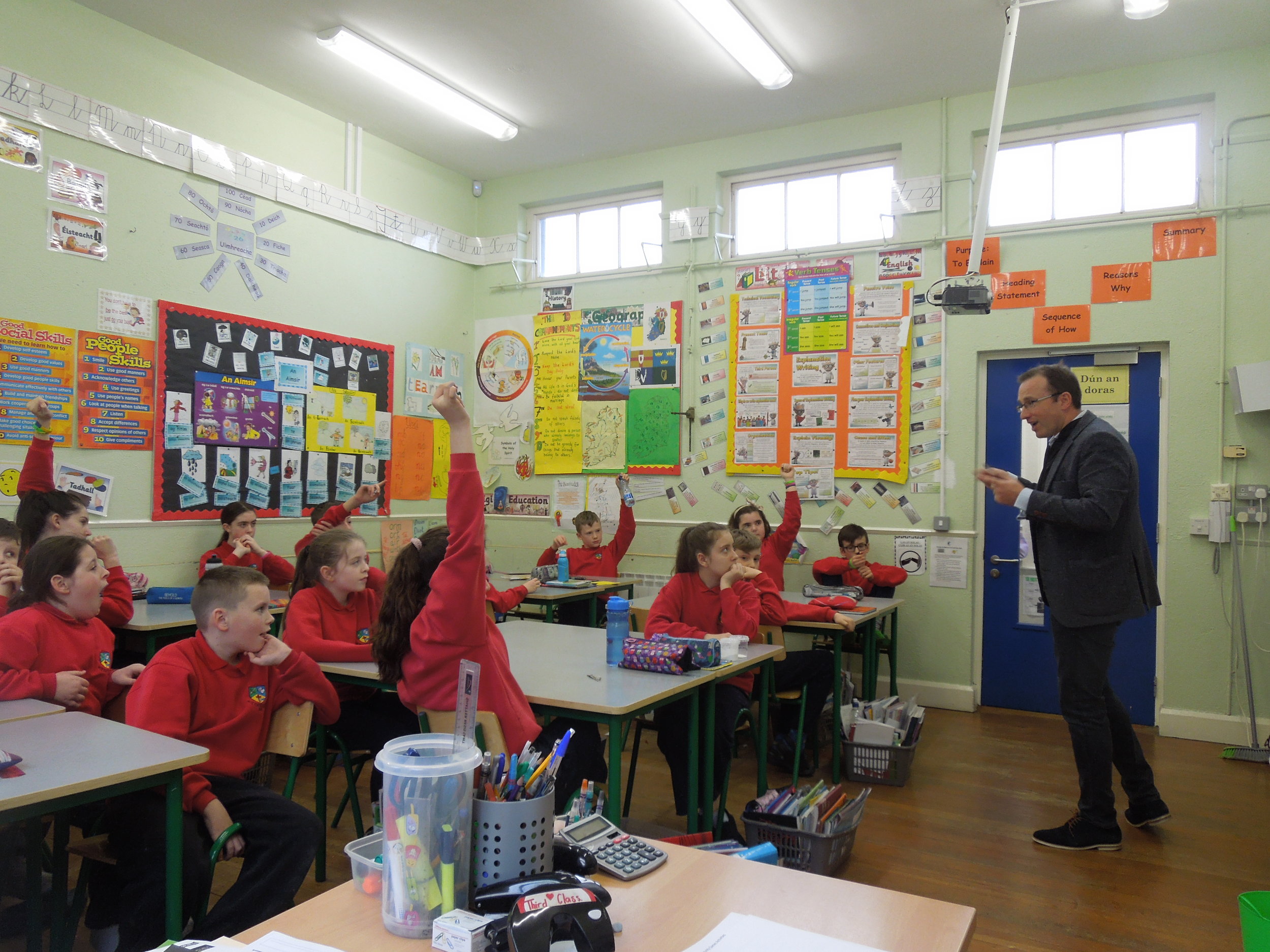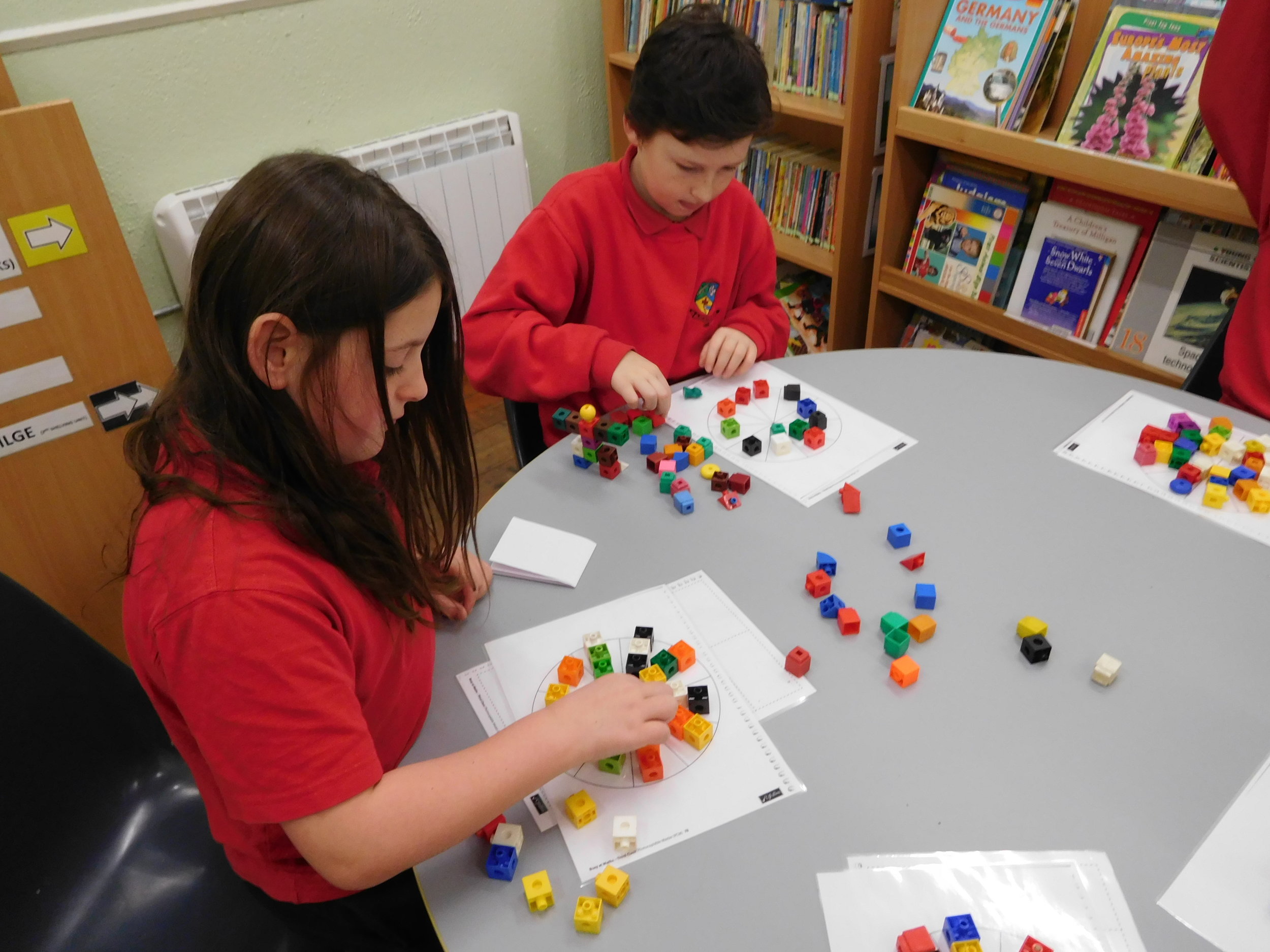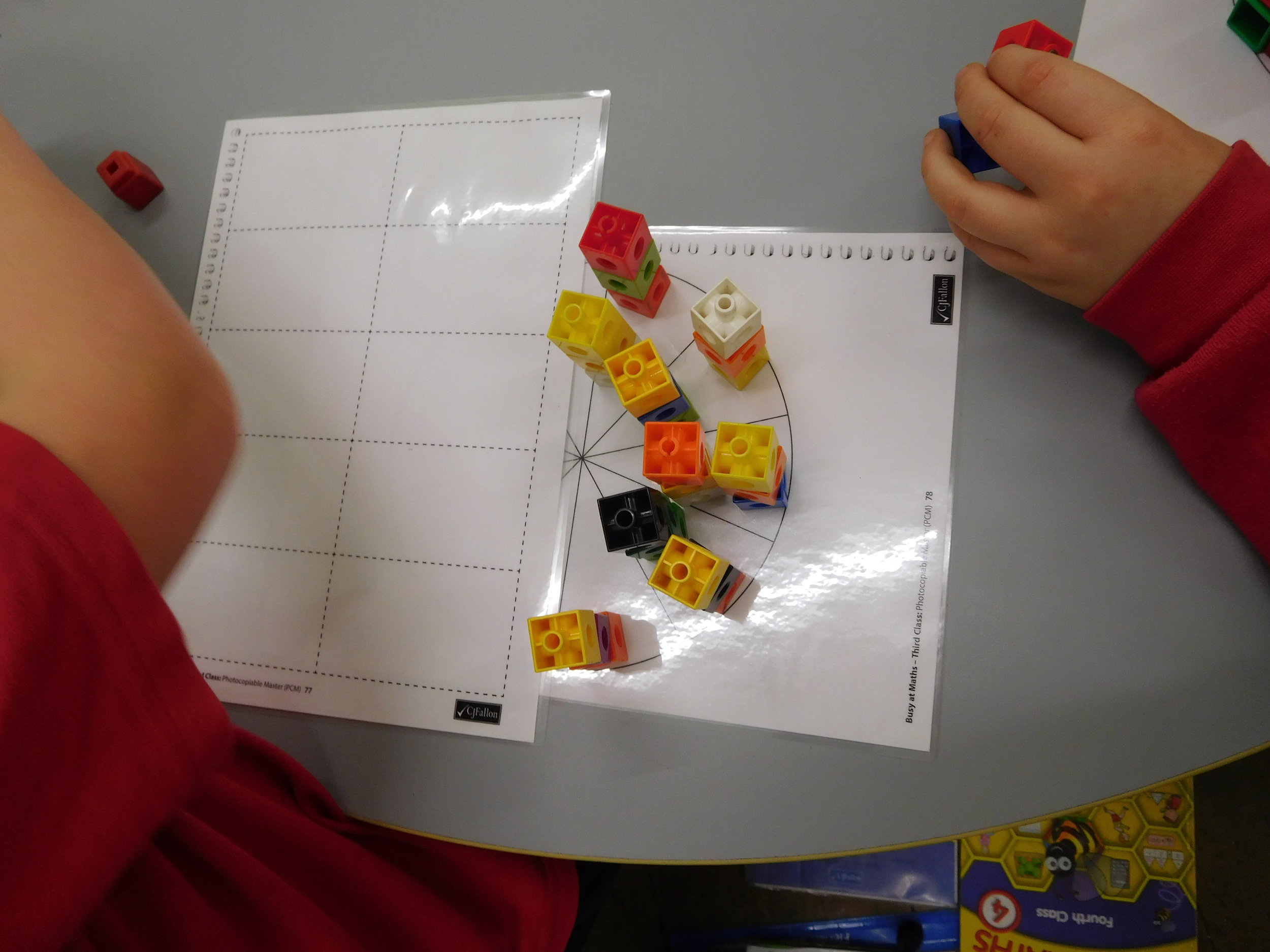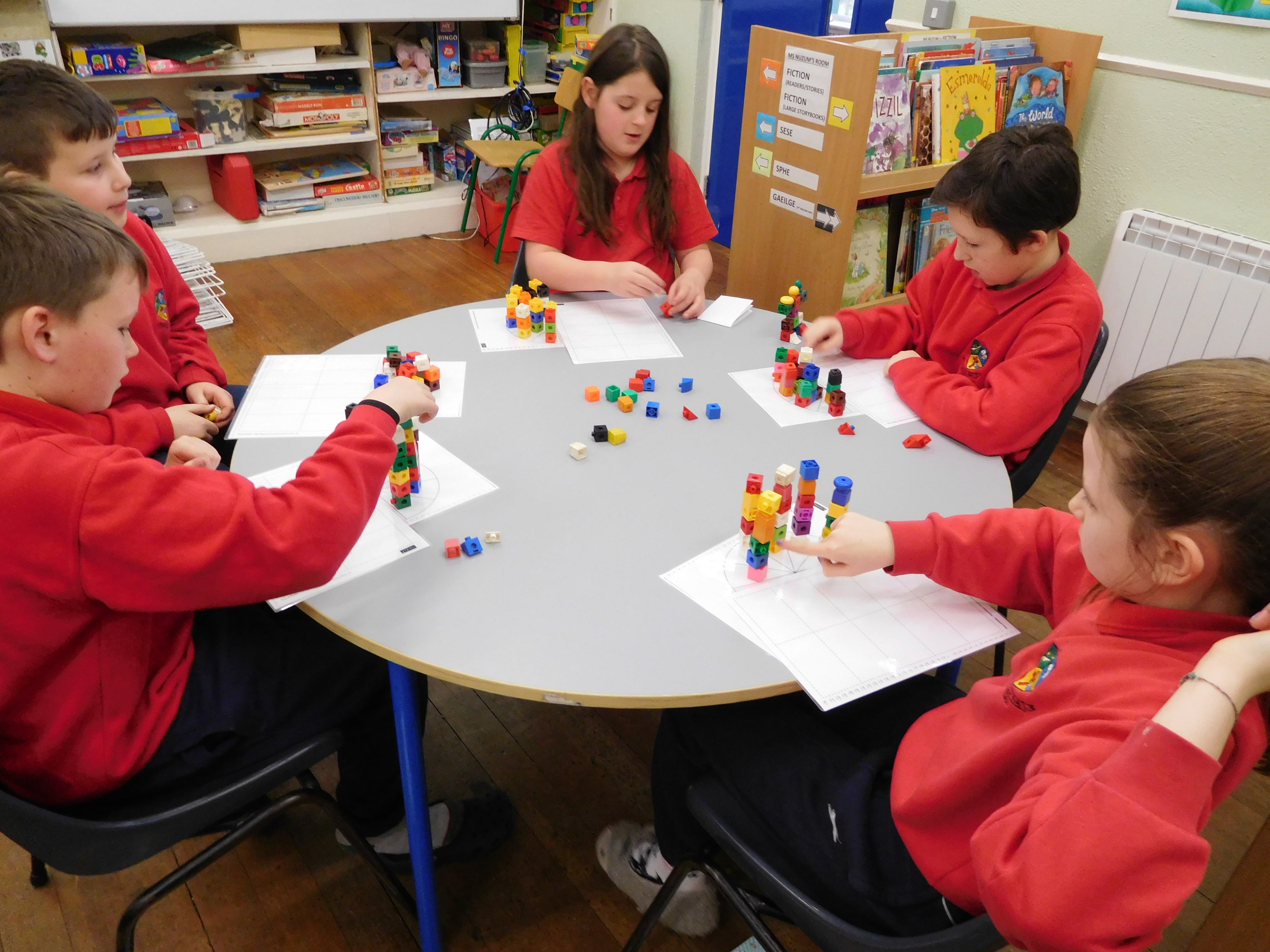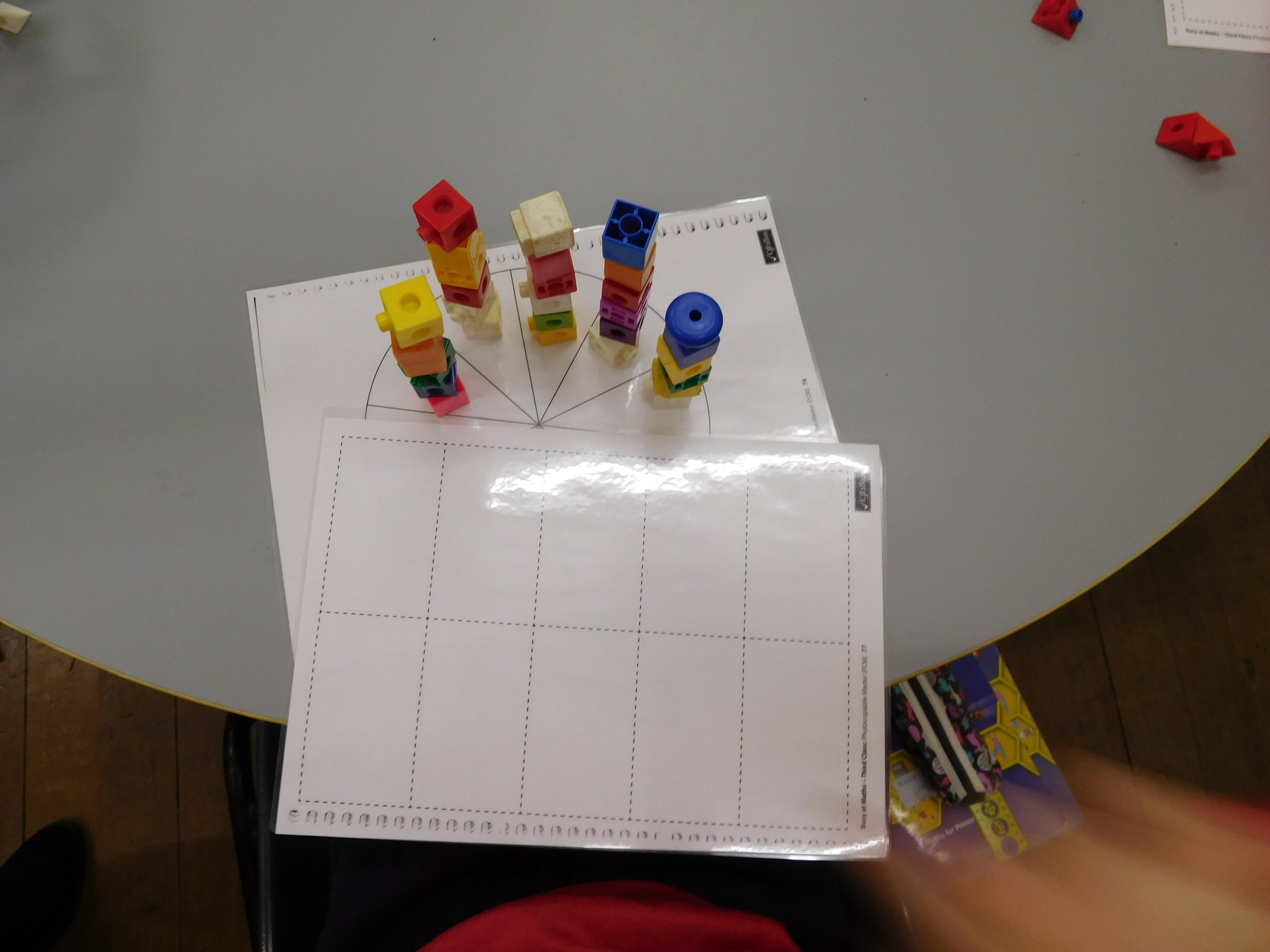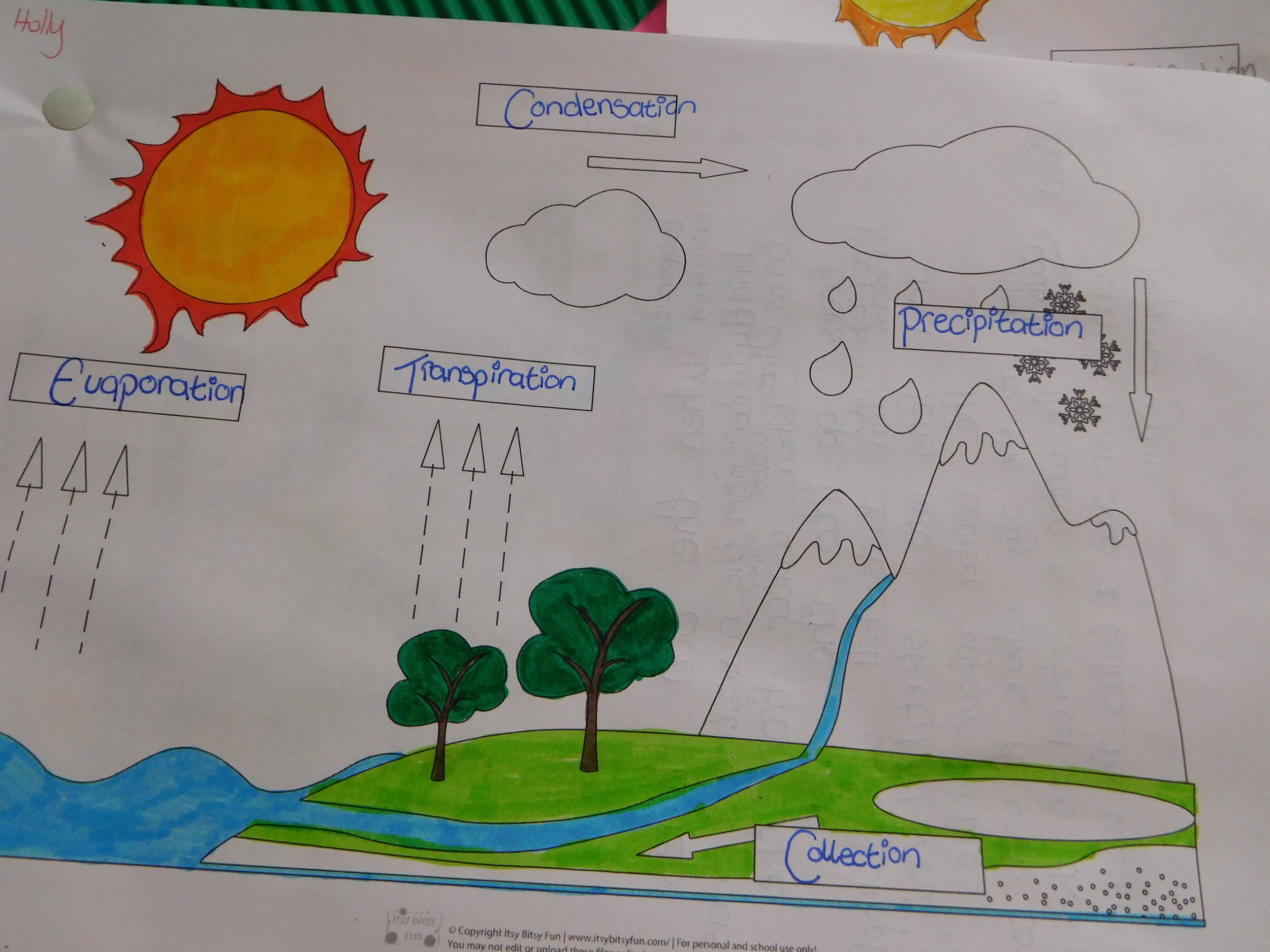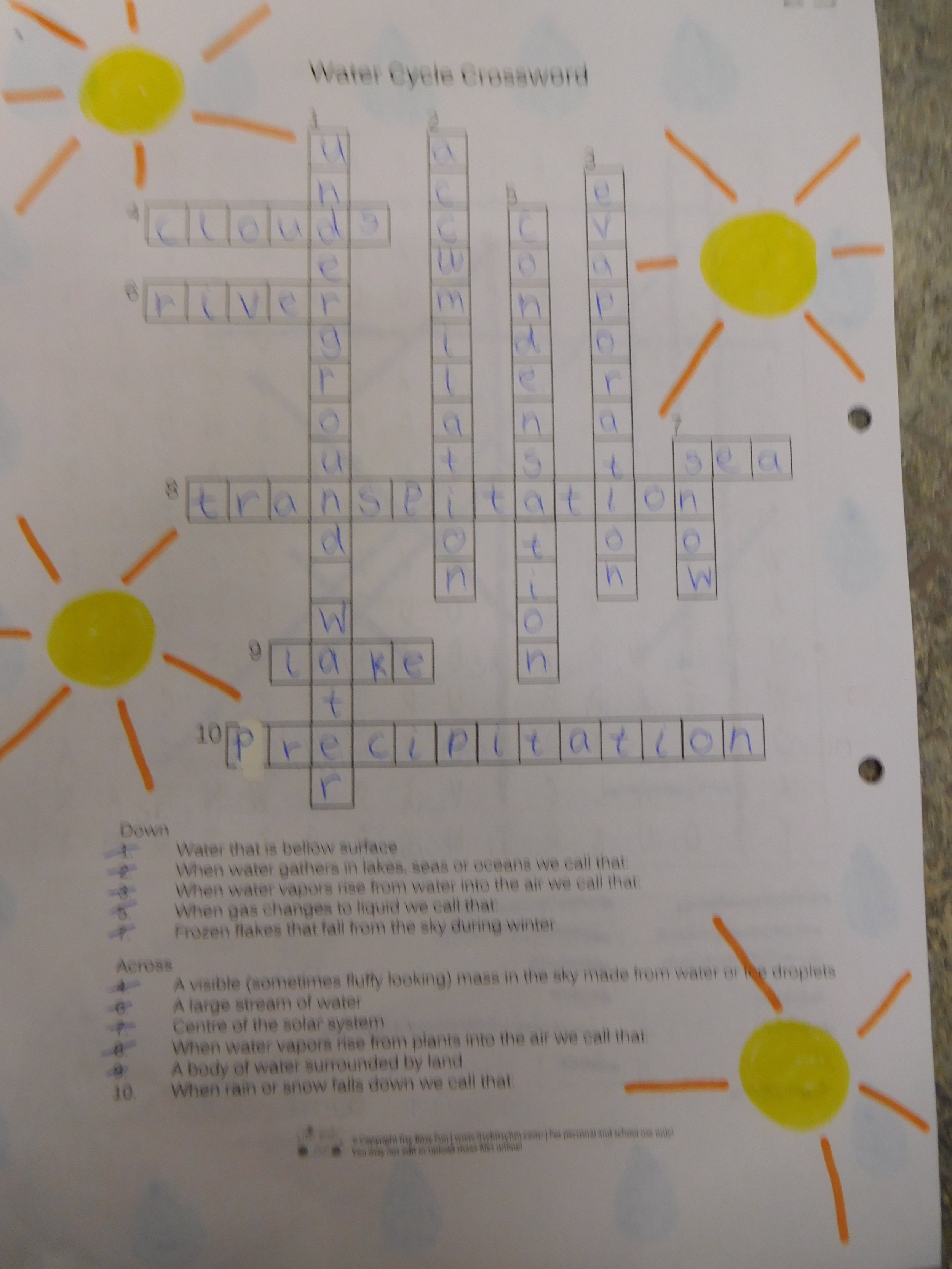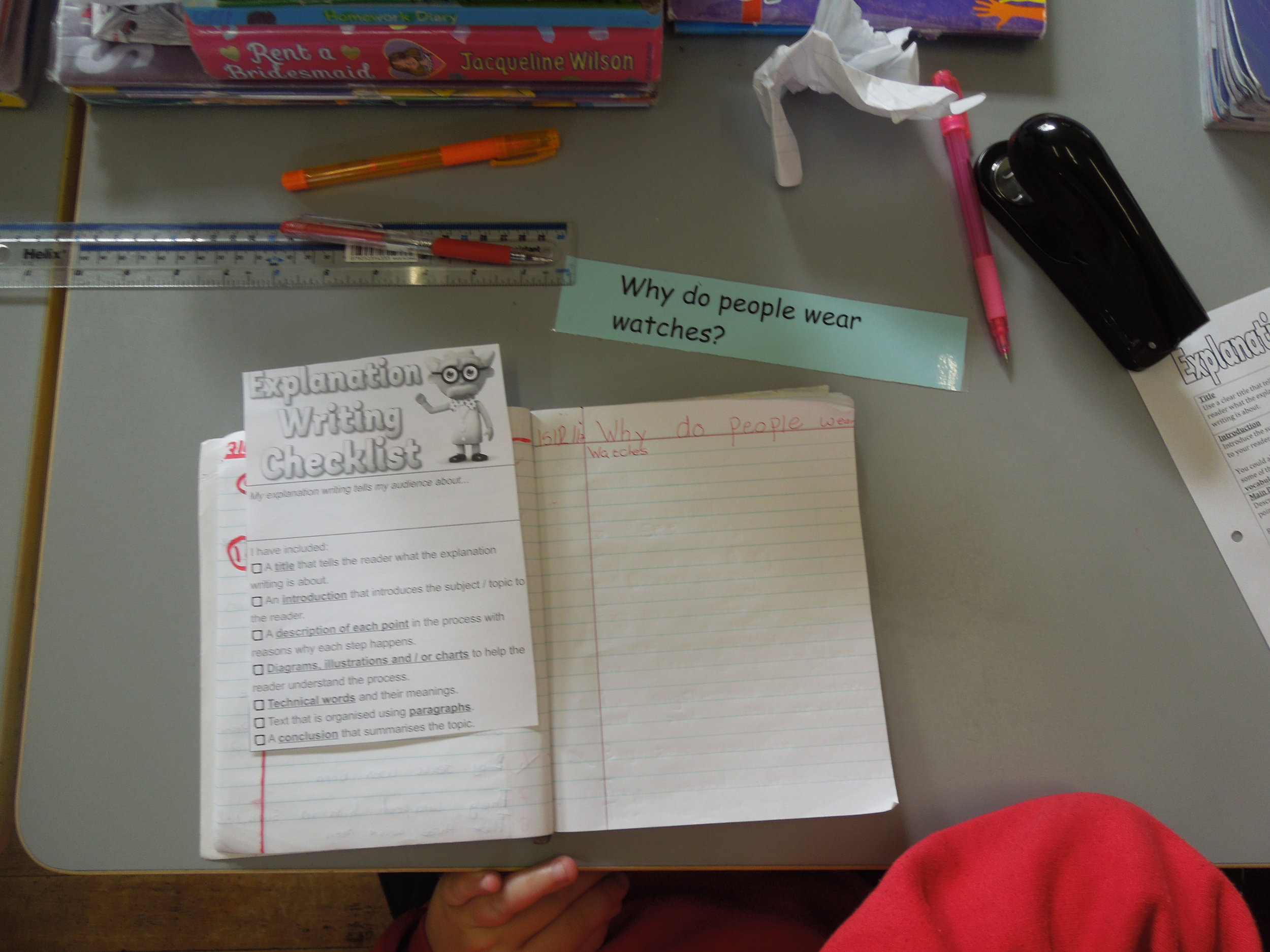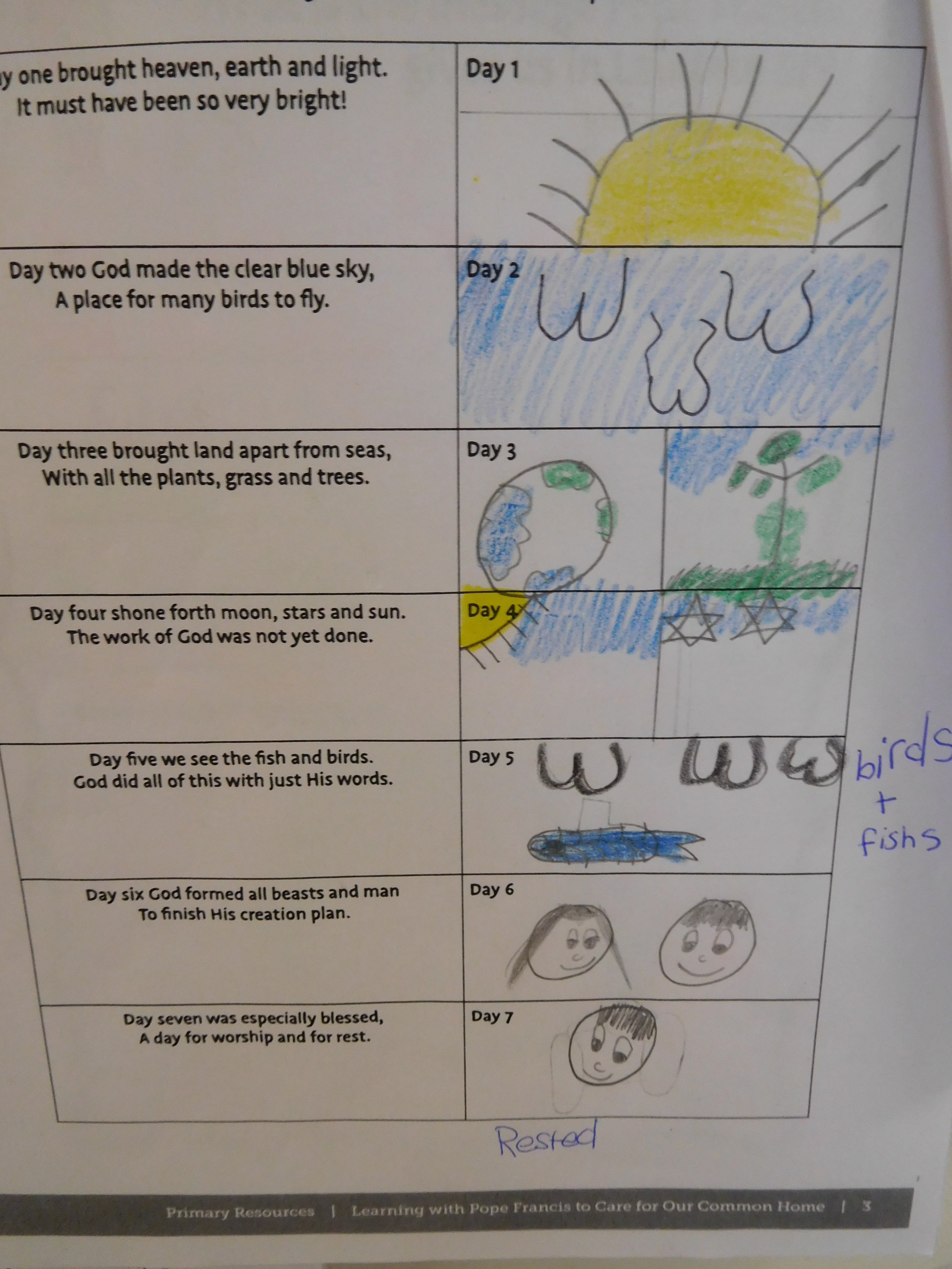Good relationships need to be at the heart of everything in school if effective teaching and learning are to take place.
Roisin Úi Fhearraigh
Since September 2016 Restorative Practice has been introduced on a phased basis into Scoil San Eoin. This is following on from staff CPD in the area the previous year. Restorative Practise is a way of looking at, and dealing with, incidents of negative or challenging behaviour within the school. It teaches pupils a new mindset and how to look at, and deal with, negative situations in a new way. It also allows staff members to initiate discussion on the incident through circle time, rather than handing down sanctions, straight away.
“Restorative Practices are a framework for building community and for responding to challenging behaviour through authentic dialogue, coming to understanding, and making things right”
Teaching Restorative Practices with Classroom Circles
The aim of Restorative Practice in Scoil San Eoin, is that it will be used in conjunction with our current Code of Behaviour. It can be utilised on a needs basis, when an incident occurs and/or during SPHE time. It is important to the staff that Restorative Practice becomes more than just a means of dealing with issues between pupils or with pupils and staff, but more a different way of thinking for the pupils and staff on a daily basis. We hope that in time, there will be little need for sanctions within the school, as the pupils themselves will have learned how to take responsibility for their actions and act accordingly. We encourage the concept of RP to be utilised and introduced by parents/guardians in the home also.
Below are the 5 questions used in Restorative Practice:
1 – What happened?
2 – What were you thinking/feeling at the time?
3 – Who has been affected by this?
4 – What are you thinking/feeling now?
5 – What do you need/need to do to put things right?
All parties involved are asked these questions and get to say what they wish to say in a respectful, calm environment. There are no ‘victims’ or ‘perpetrators in Restorative Practice, simply those that are involved in the incident. The pupils are also never asked ‘why’ they did what they did. Through the use of these questions, the pupils are enabled to gain perspective of how things are from the other person’s viewpoint, become empathetic and understanding of others and realise the consequences of their actions.
Schools in which RP is adopted:
• Are happier and safer schools
• Have mutually respectful relationships
• Have less stress for staff
• Have more effective teaching and learning
• Have reduced exclusion
• Have raised attendance
Click here to visit the website.

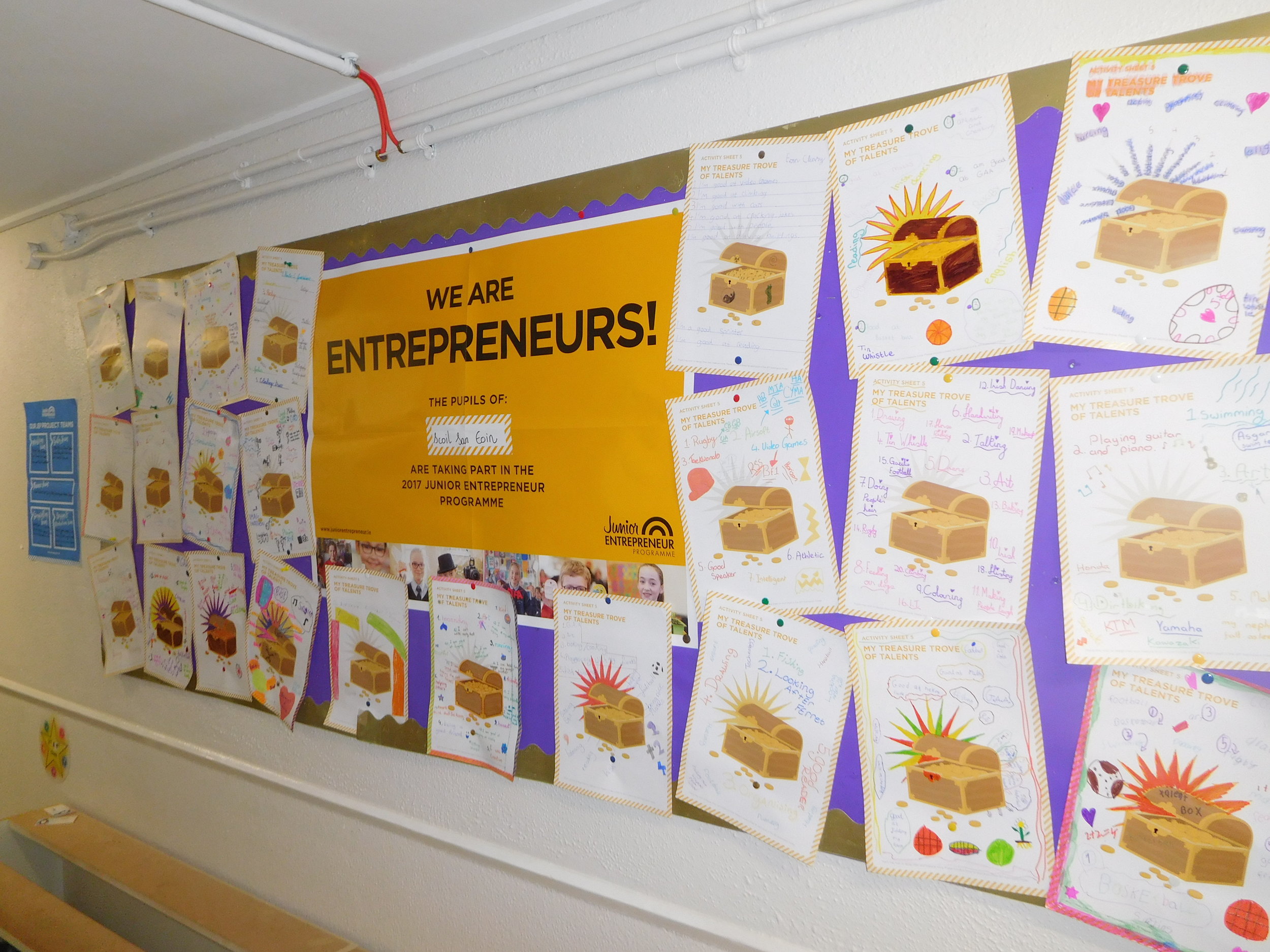
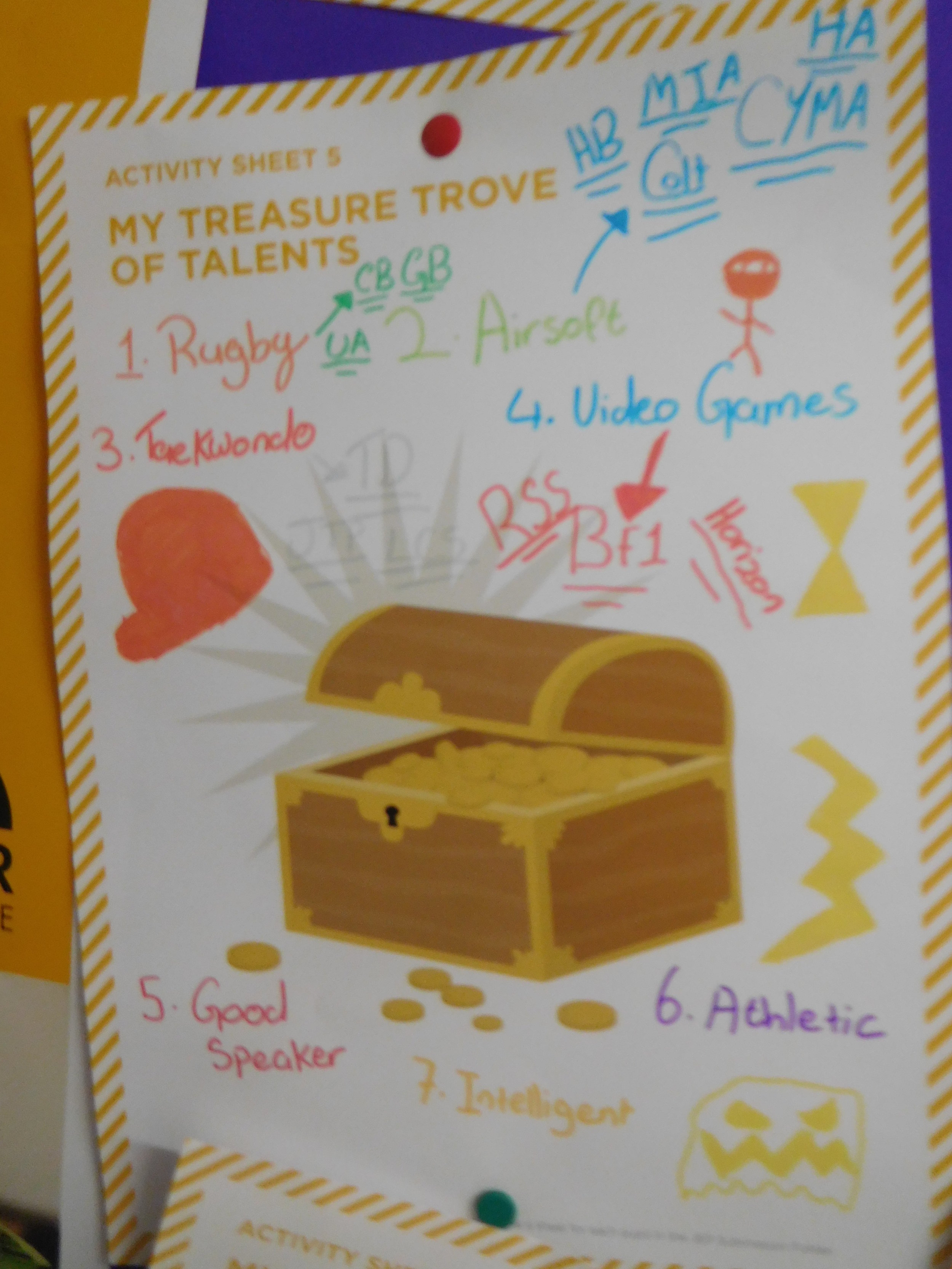
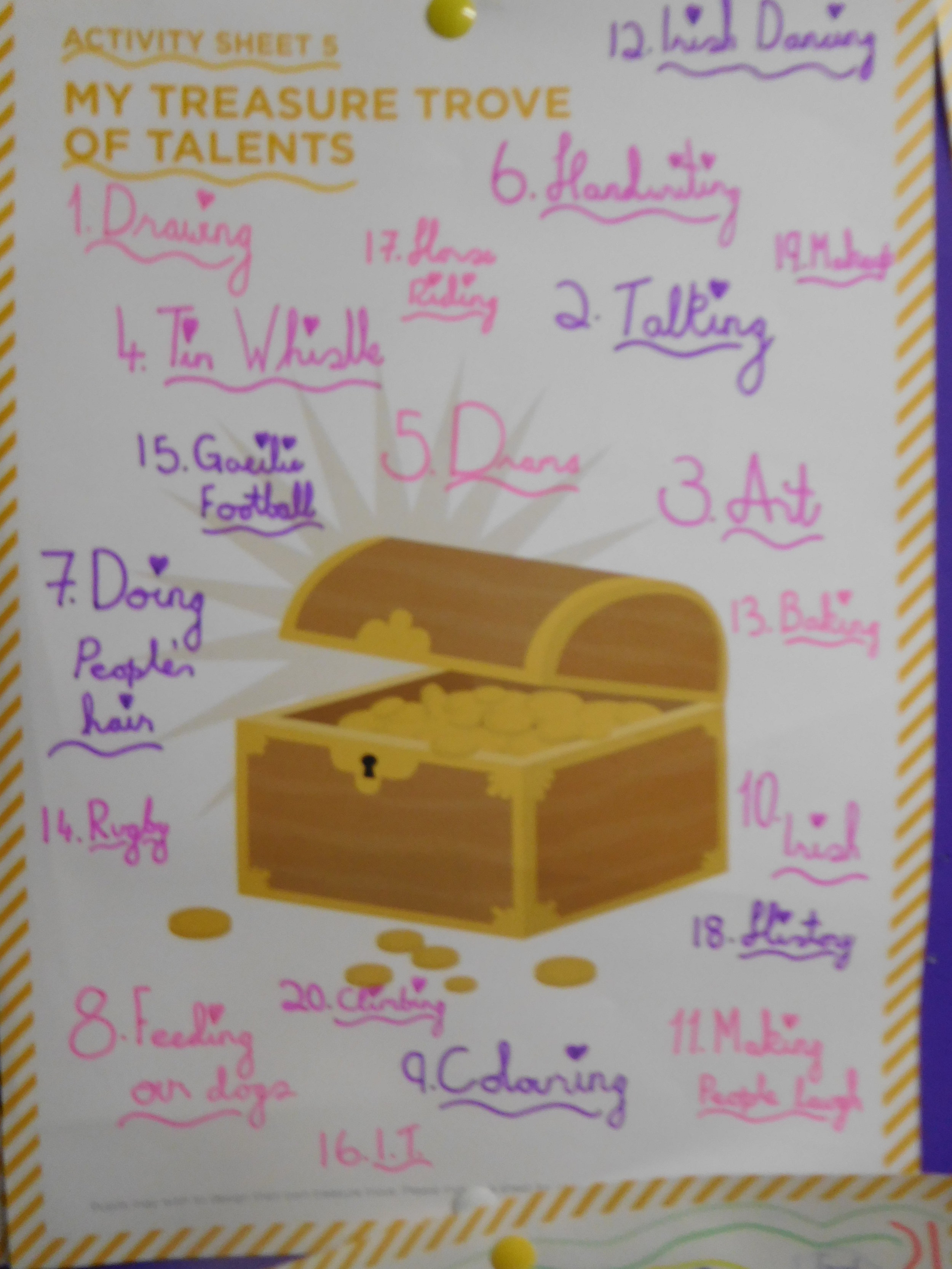
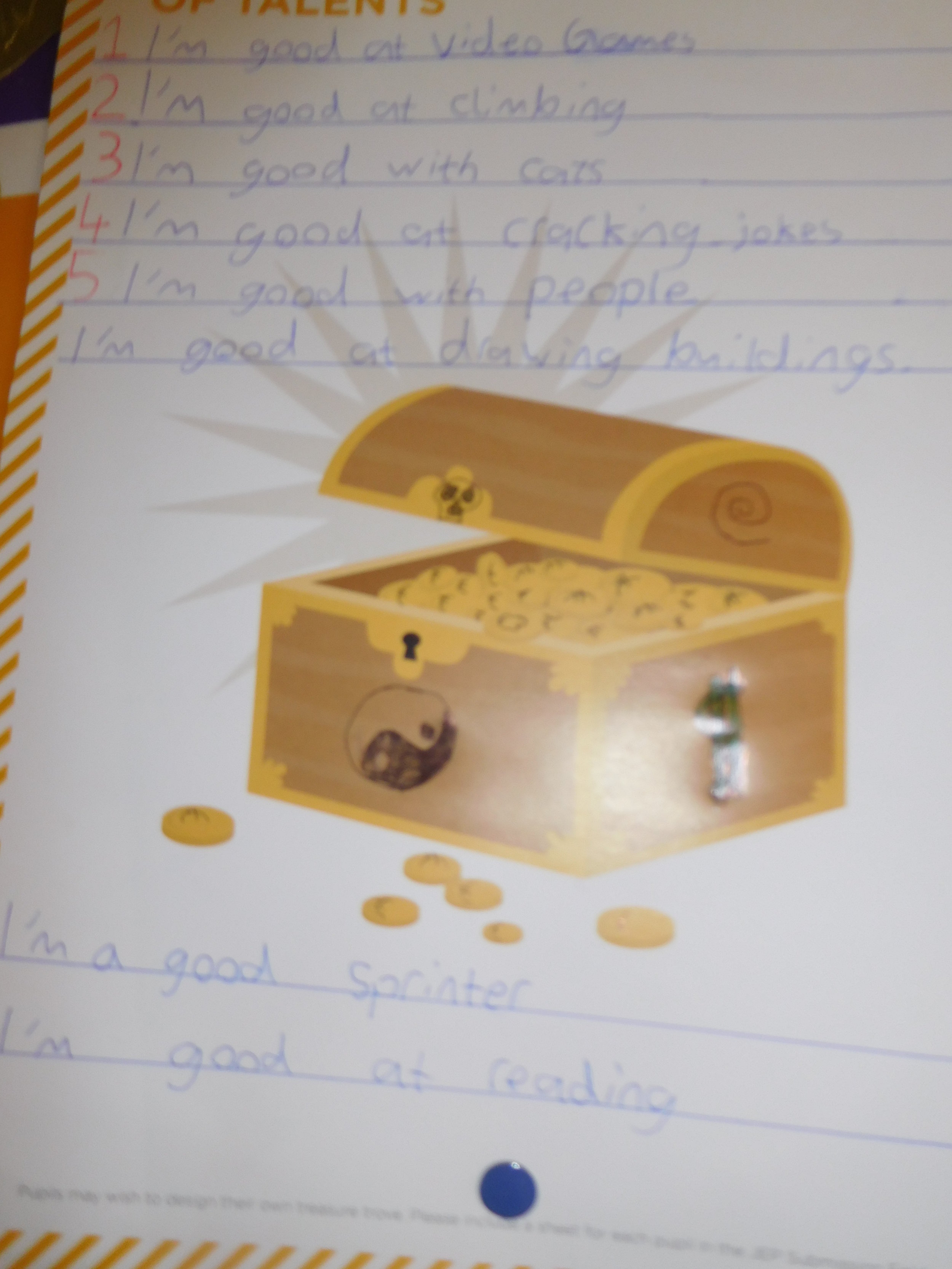
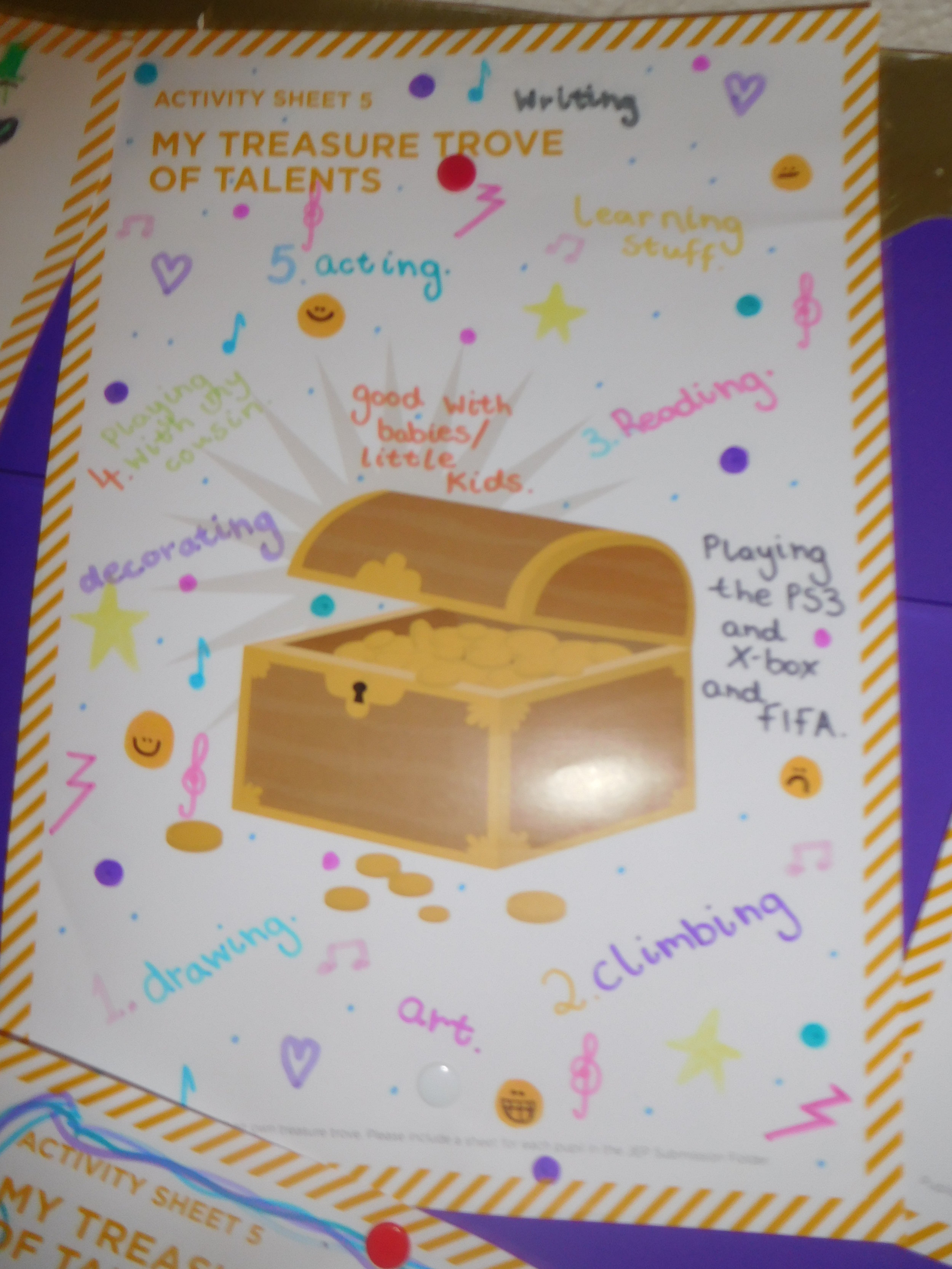
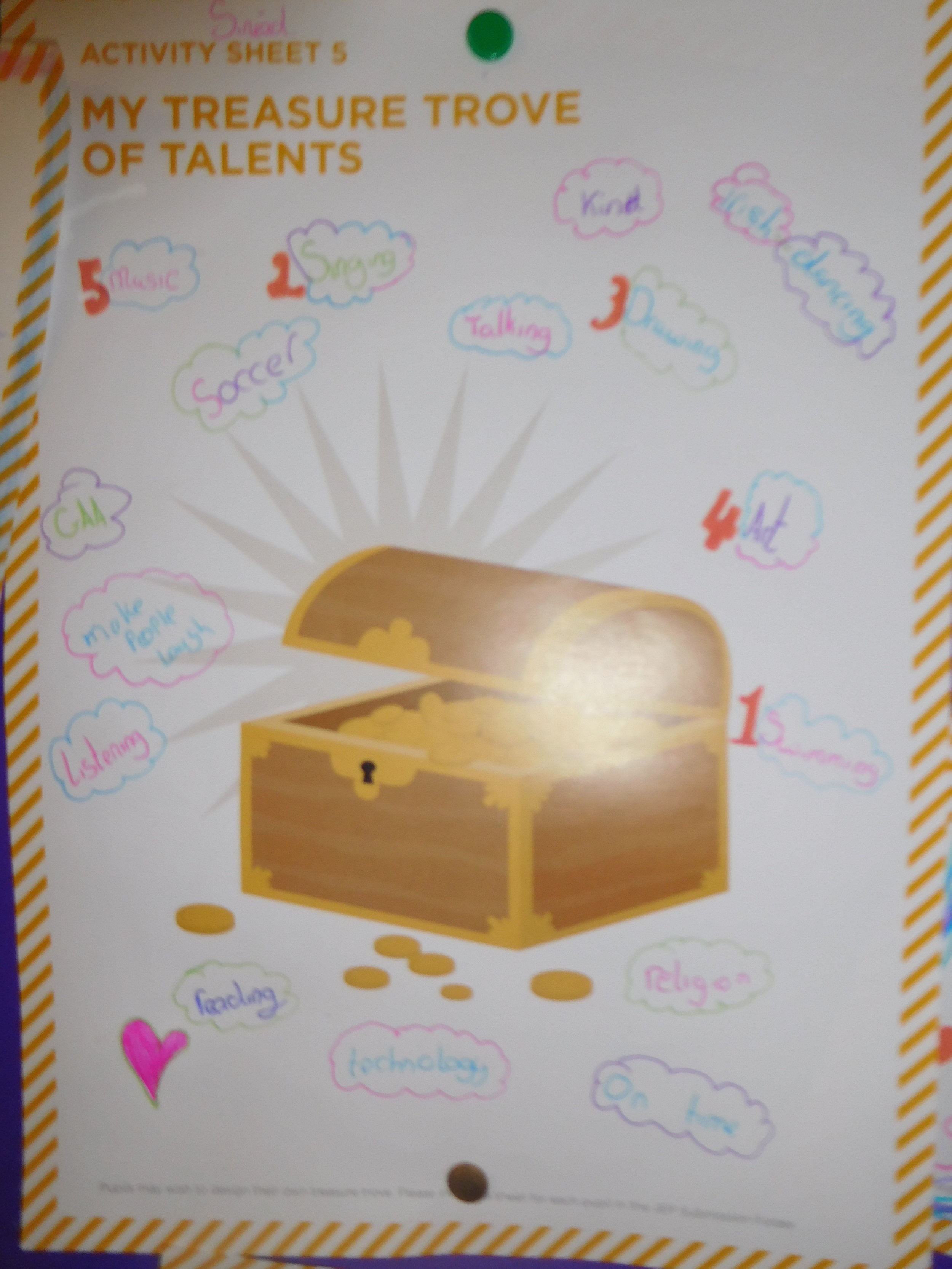
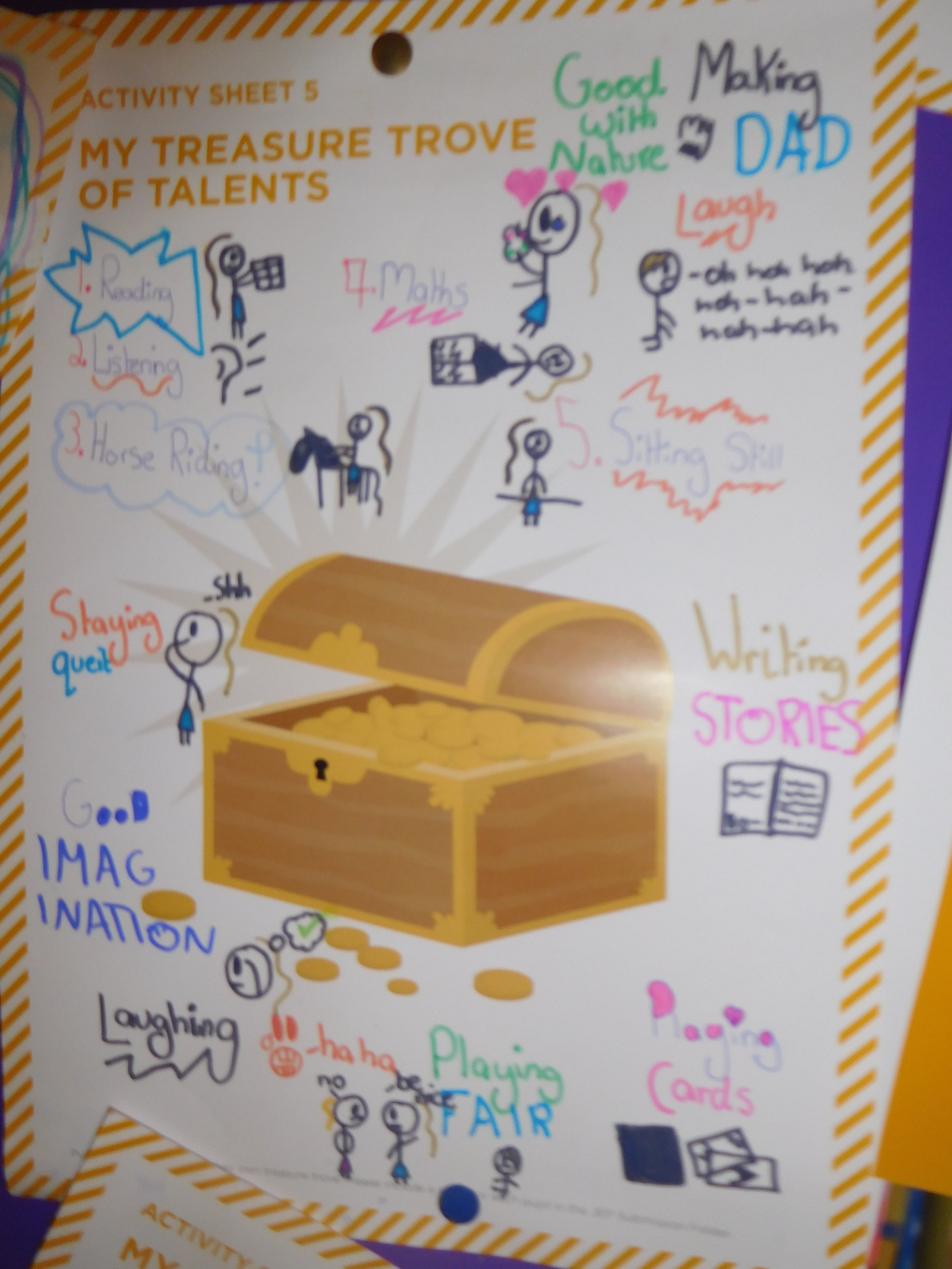
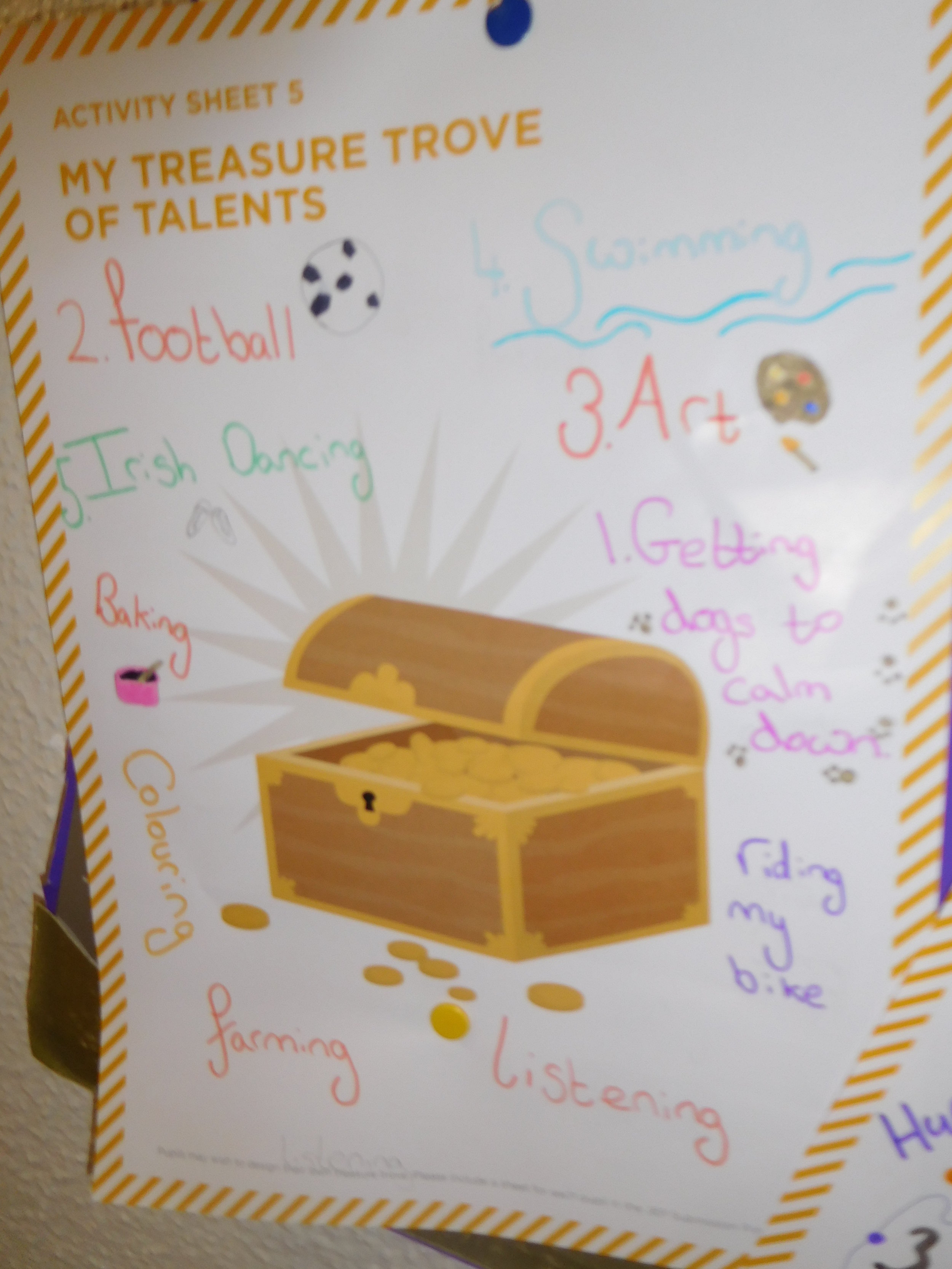

![DSCN5995[1].JPG](https://images.squarespace-cdn.com/content/v1/570ce8ea20c6471561745a25/1489071829187-ZWMM554OMYKCGC29SJVA/DSCN5995%5B1%5D.JPG)




![DSCN5956[1].JPG](https://images.squarespace-cdn.com/content/v1/570ce8ea20c6471561745a25/1489070441668-AYZ85RW1N7X2NBAR3HFB/DSCN5956%5B1%5D.JPG)
![DSCN5959[1].JPG](https://images.squarespace-cdn.com/content/v1/570ce8ea20c6471561745a25/1489070546114-XGRF79CO7T929OPKH1DM/DSCN5959%5B1%5D.JPG)
![DSCN5958[1].JPG](https://images.squarespace-cdn.com/content/v1/570ce8ea20c6471561745a25/1489070509869-60ZR80DGODXQSXQMU8SF/DSCN5958%5B1%5D.JPG)
![DSCN5957[1].JPG](https://images.squarespace-cdn.com/content/v1/570ce8ea20c6471561745a25/1489070477472-09OXB1IO21QX00DK799T/DSCN5957%5B1%5D.JPG)
![DSCN6009[1].JPG](https://images.squarespace-cdn.com/content/v1/570ce8ea20c6471561745a25/1489062336432-EUCWHUAYQ26H3GMU0CRN/DSCN6009%5B1%5D.JPG)
![DSCN6001[1].JPG](https://images.squarespace-cdn.com/content/v1/570ce8ea20c6471561745a25/1489062409089-W0KK7DTD4C9EX55ZYPVY/DSCN6001%5B1%5D.JPG)
![DSCN6008[1].JPG](https://images.squarespace-cdn.com/content/v1/570ce8ea20c6471561745a25/1489062366722-CFUJ65971RMKDP6YE5VH/DSCN6008%5B1%5D.JPG)
![DSCN6005[1].JPG](https://images.squarespace-cdn.com/content/v1/570ce8ea20c6471561745a25/1489062560977-SXQZ5L9ZEZG9TW99IAN6/DSCN6005%5B1%5D.JPG)
![DSCN6002[1].JPG](https://images.squarespace-cdn.com/content/v1/570ce8ea20c6471561745a25/1489062470350-66YR83JKRINF5QWURZ0G/DSCN6002%5B1%5D.JPG)
![DSCN6006[1].JPG](https://images.squarespace-cdn.com/content/v1/570ce8ea20c6471561745a25/1489062608800-6KABOQ0EP5SMOJPLVSYY/DSCN6006%5B1%5D.JPG)
![DSCN6007[1].JPG](https://images.squarespace-cdn.com/content/v1/570ce8ea20c6471561745a25/1489062640932-F0HD6BZJV3EDSB68NHIK/DSCN6007%5B1%5D.JPG)
![DSCN6011[1].JPG](https://images.squarespace-cdn.com/content/v1/570ce8ea20c6471561745a25/1489062729346-1W1NBL2NTX6QCECTKOIU/DSCN6011%5B1%5D.JPG)
![DSCN6010[1].JPG](https://images.squarespace-cdn.com/content/v1/570ce8ea20c6471561745a25/1489062691794-XSETBCWQX7J7HFYTR0AS/DSCN6010%5B1%5D.JPG)
![DSCN6013[1].JPG](https://images.squarespace-cdn.com/content/v1/570ce8ea20c6471561745a25/1489062814808-TH7ULYHL89KEV876P1WZ/DSCN6013%5B1%5D.JPG)
![DSCN6012[1].JPG](https://images.squarespace-cdn.com/content/v1/570ce8ea20c6471561745a25/1489062776268-GZ4VJ0C2HOFQXFJV51Q8/DSCN6012%5B1%5D.JPG)
![DSCN5988[1].JPG](https://images.squarespace-cdn.com/content/v1/570ce8ea20c6471561745a25/1489062036185-SZFLL2HQP3J81EOYGYNQ/DSCN5988%5B1%5D.JPG)
![DSCN5989[1].JPG](https://images.squarespace-cdn.com/content/v1/570ce8ea20c6471561745a25/1489062111286-XDEQNPWARA2SG5WCZCGV/DSCN5989%5B1%5D.JPG)
![DSCN5988[1].JPG](https://images.squarespace-cdn.com/content/v1/570ce8ea20c6471561745a25/1488816602151-V43RPRE8J8ESWNCO5LTA/DSCN5988%5B1%5D.JPG)
![DSCN5997[1].JPG](https://images.squarespace-cdn.com/content/v1/570ce8ea20c6471561745a25/1489057661963-BWRXIXWB688X9S61CH4I/DSCN5997%5B1%5D.JPG)
![DSCN5996[1].JPG](https://images.squarespace-cdn.com/content/v1/570ce8ea20c6471561745a25/1489057737625-XW0JEX0HLHBI3LGJSZQ7/DSCN5996%5B1%5D.JPG)
![DSCN5998[1].JPG](https://images.squarespace-cdn.com/content/v1/570ce8ea20c6471561745a25/1489057804355-JRM7C42466C5JDCCIGGQ/DSCN5998%5B1%5D.JPG)
![DSCN5999[1].JPG](https://images.squarespace-cdn.com/content/v1/570ce8ea20c6471561745a25/1489057933028-8UVWWS2616IVF1Q40YH5/DSCN5999%5B1%5D.JPG)
![DSCN6000[1].JPG](https://images.squarespace-cdn.com/content/v1/570ce8ea20c6471561745a25/1489058028431-PL3QD4JJIXCRTSRDVSEF/DSCN6000%5B1%5D.JPG)
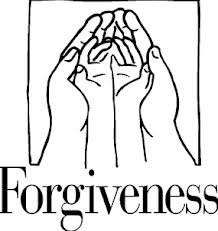
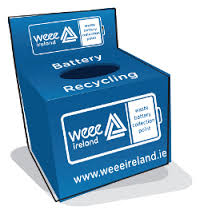


![DSCN0391[1].JPG](https://images.squarespace-cdn.com/content/v1/570ce8ea20c6471561745a25/1488549168710-6JG0A4LDC8A3K23GWUUG/DSCN0391%5B1%5D.JPG)
![DSCN0392[1].JPG](https://images.squarespace-cdn.com/content/v1/570ce8ea20c6471561745a25/1488549204668-C4CFCSGZE5I5XULXT85Z/DSCN0392%5B1%5D.JPG)
![DSCN0393[1].JPG](https://images.squarespace-cdn.com/content/v1/570ce8ea20c6471561745a25/1488549239531-FE8C9F14CQXH94HLIQBE/DSCN0393%5B1%5D.JPG)
![DSCN0394[1].JPG](https://images.squarespace-cdn.com/content/v1/570ce8ea20c6471561745a25/1488549289273-AZ3FJZ95DQCC83MTF72U/DSCN0394%5B1%5D.JPG)





